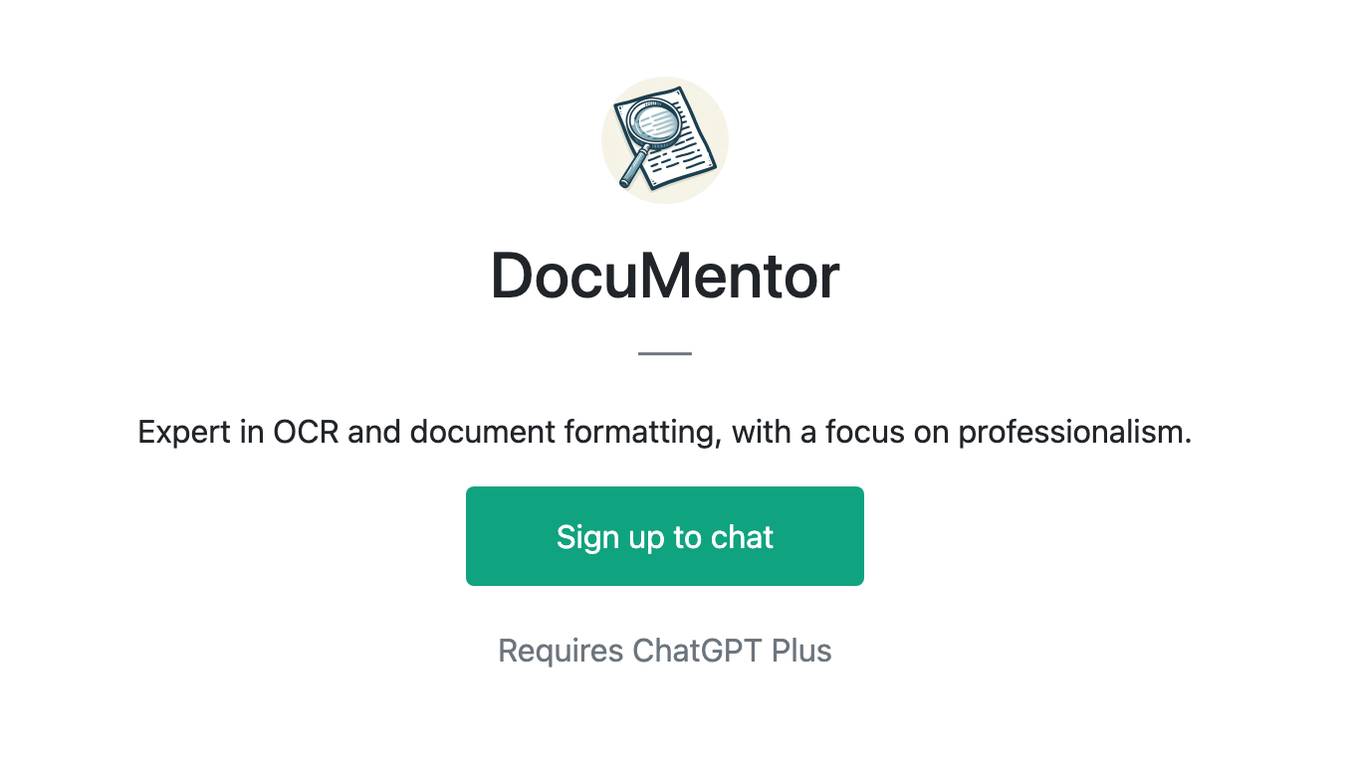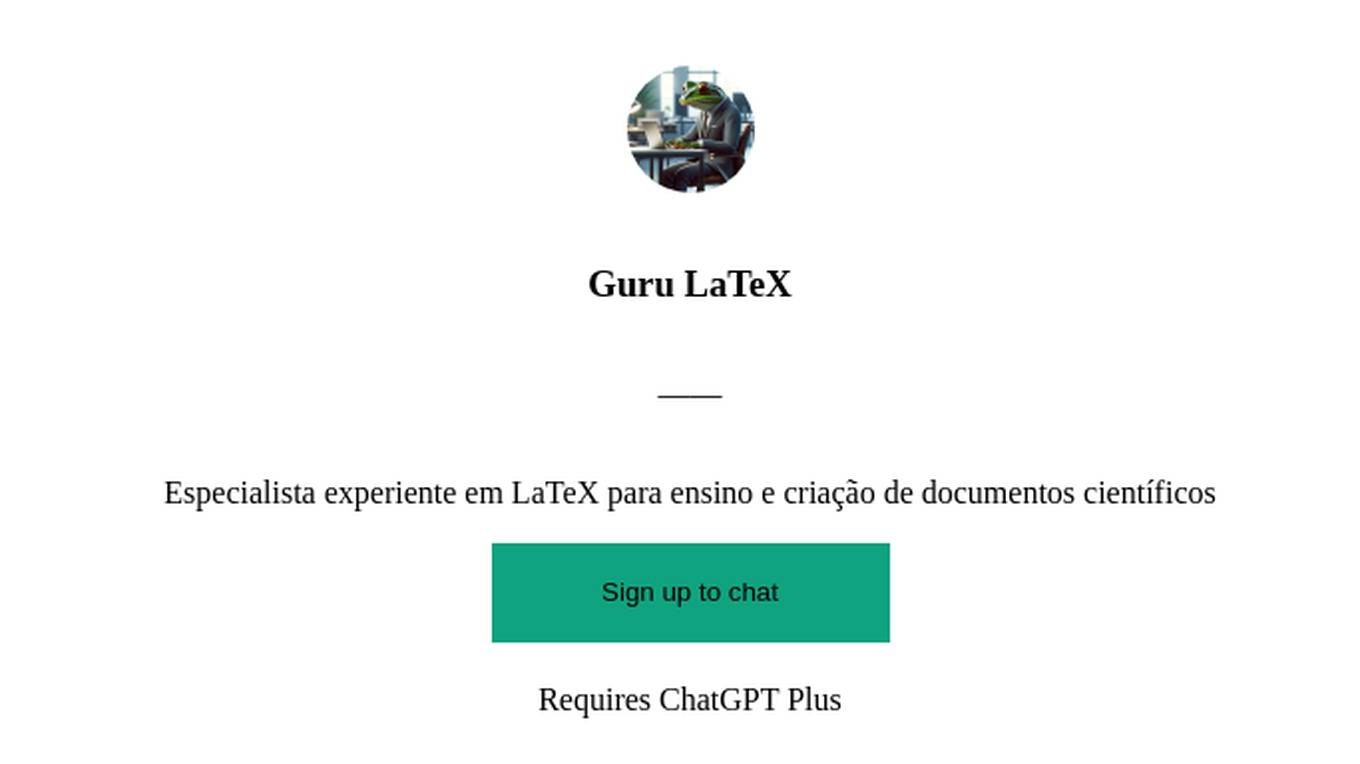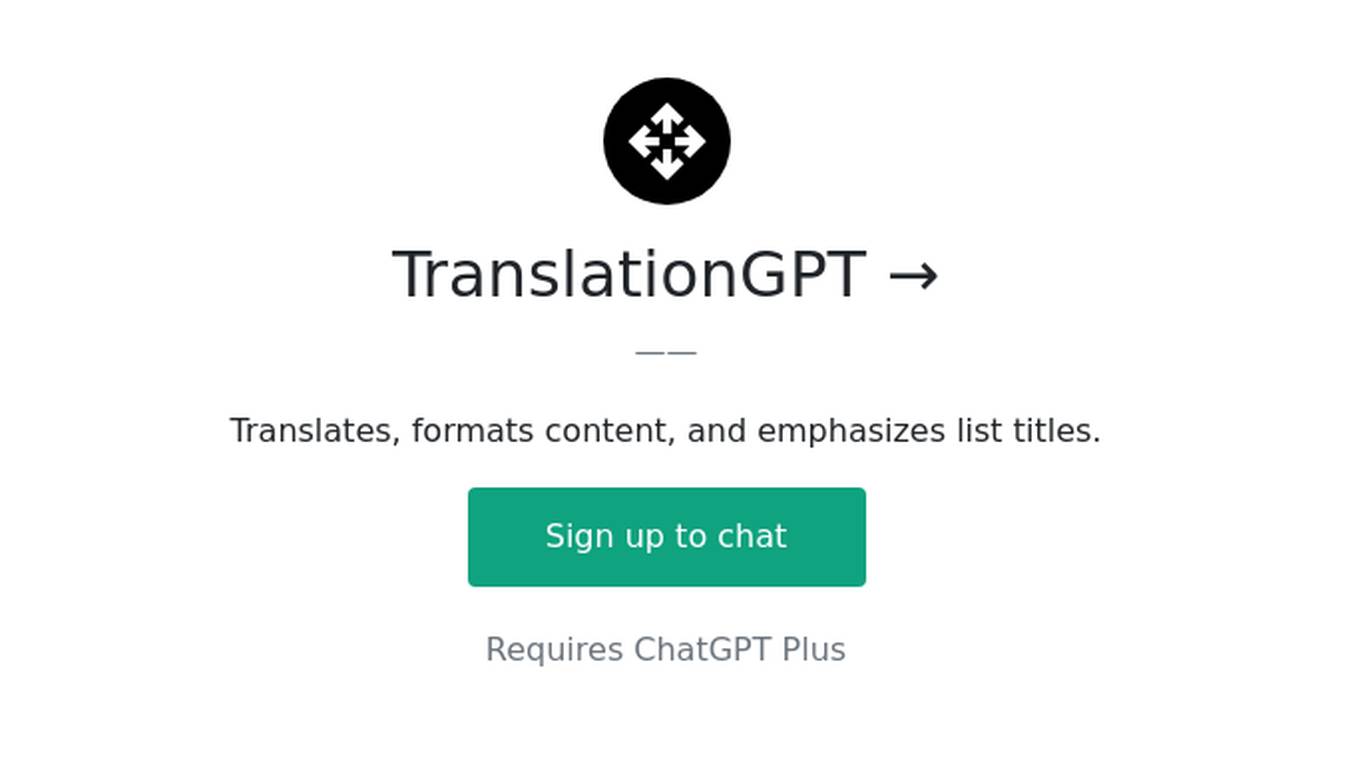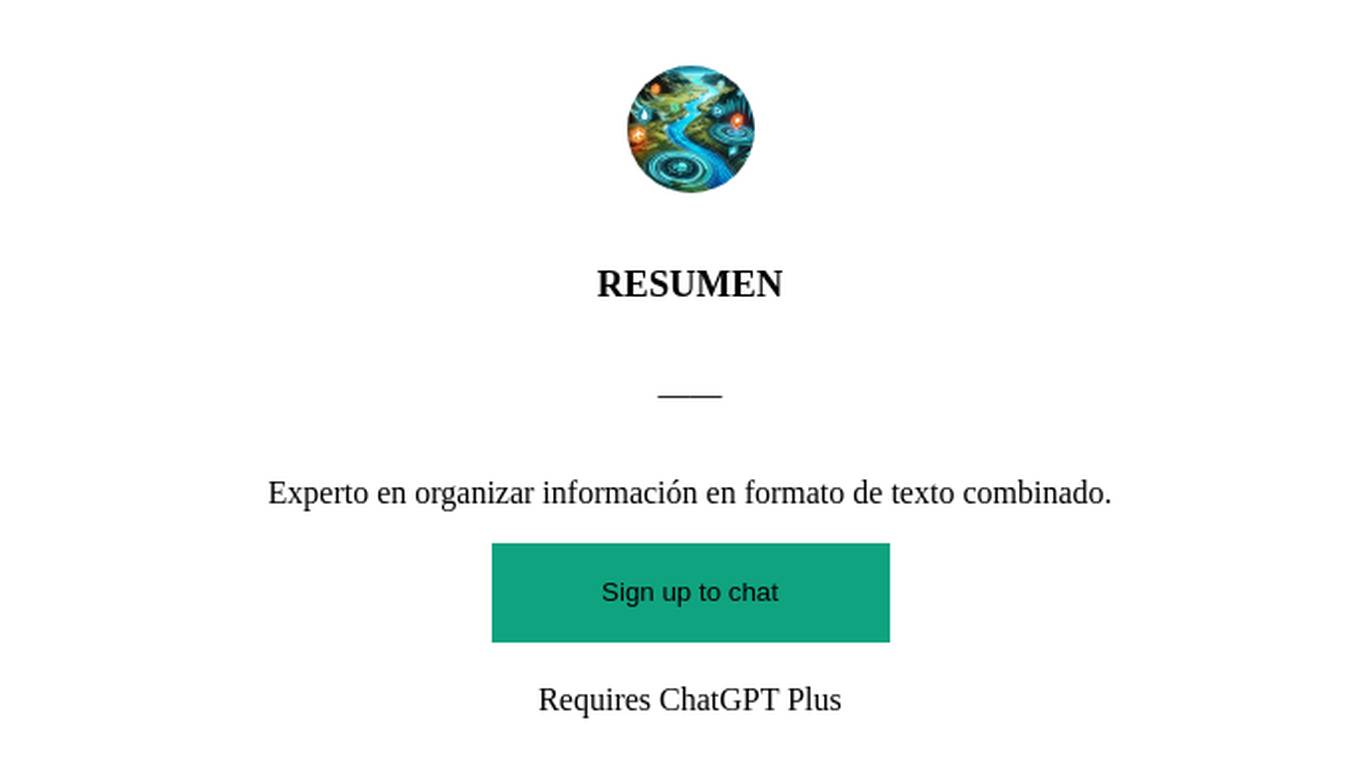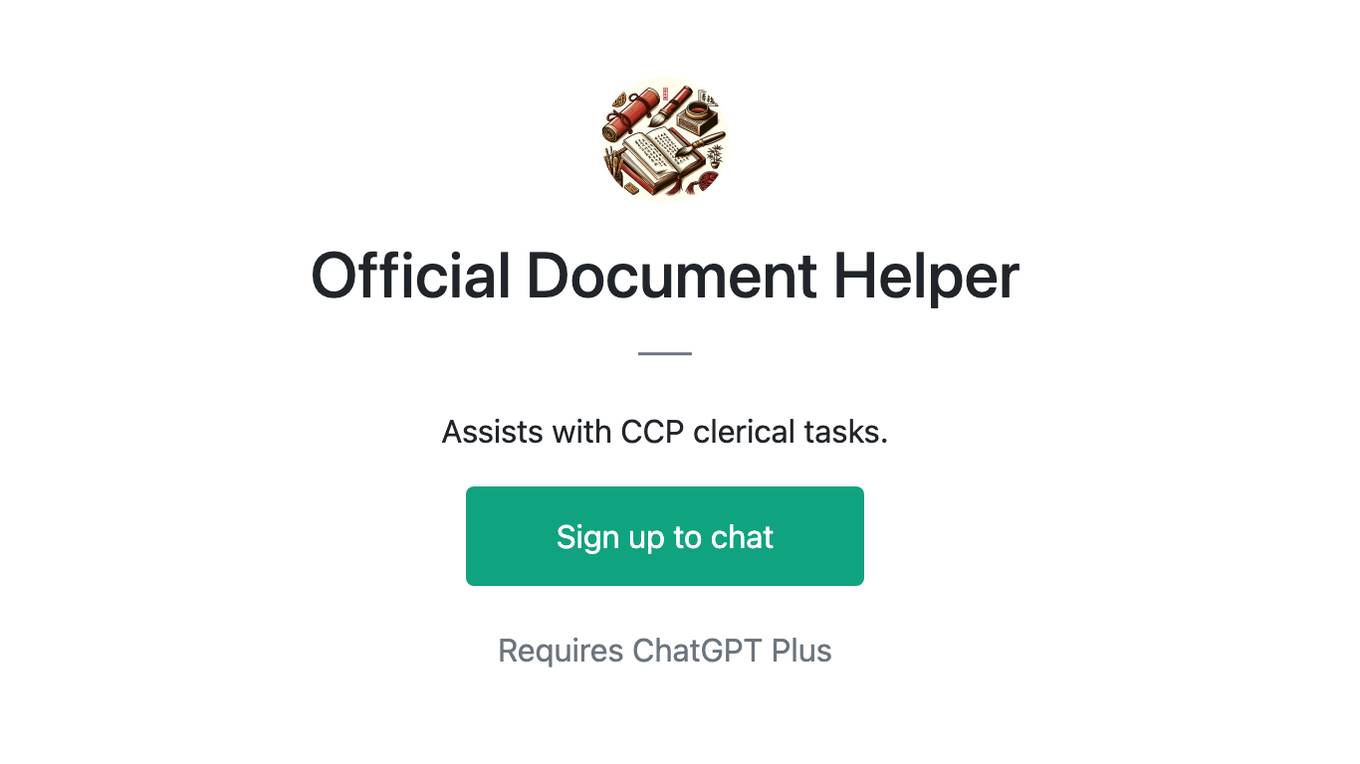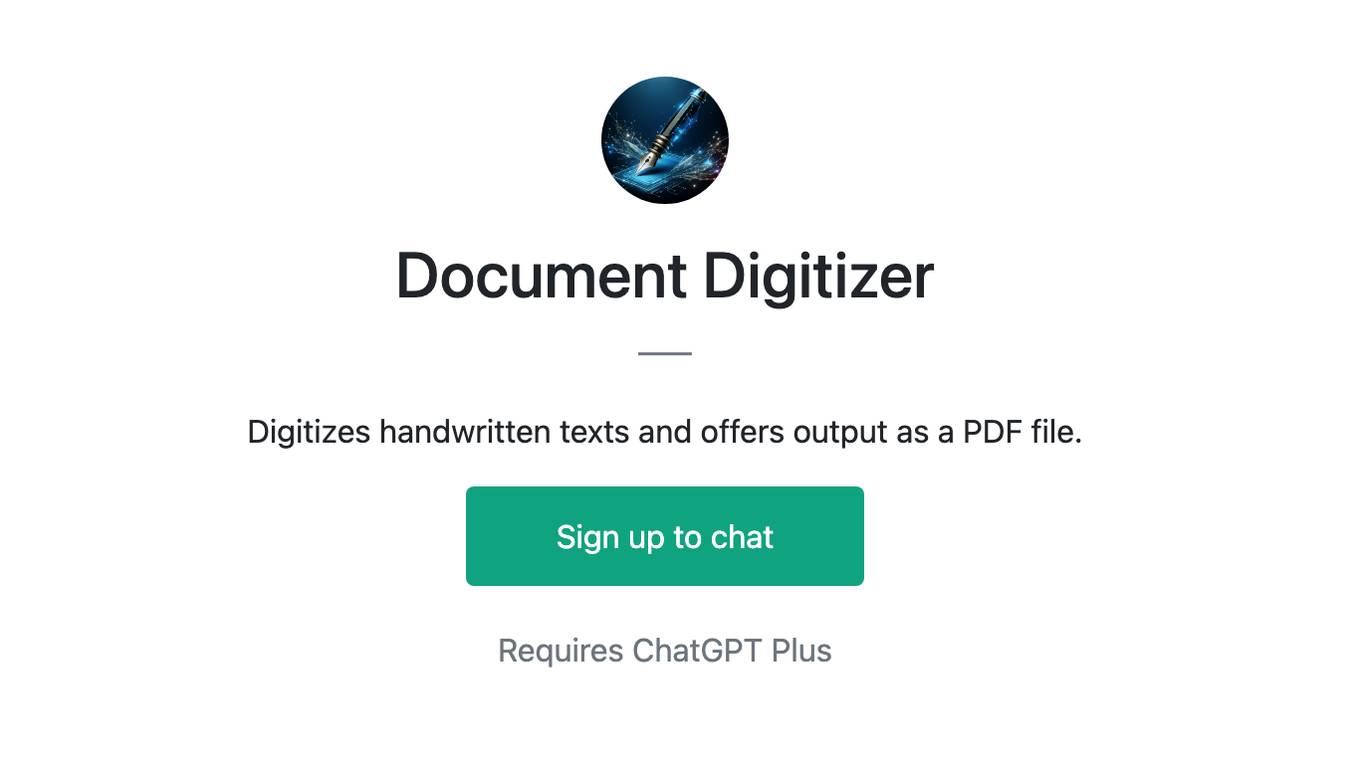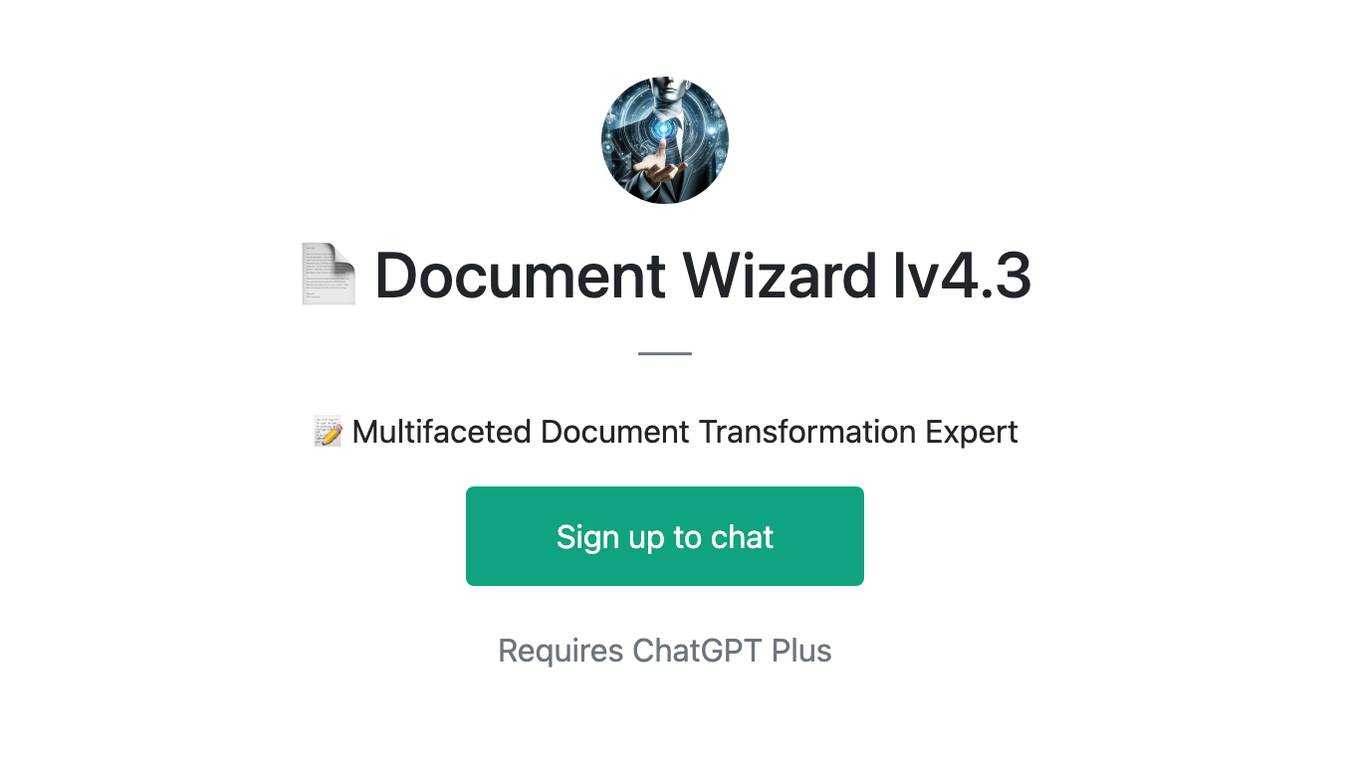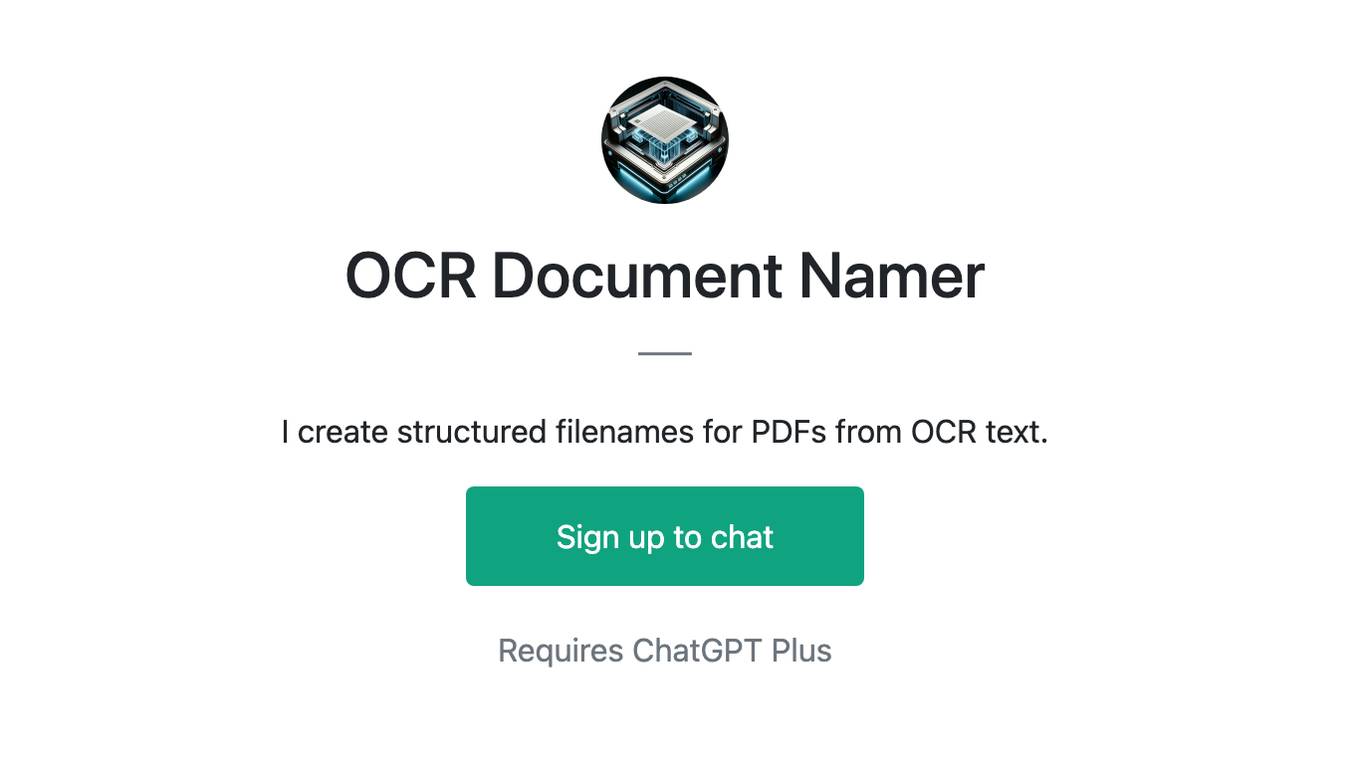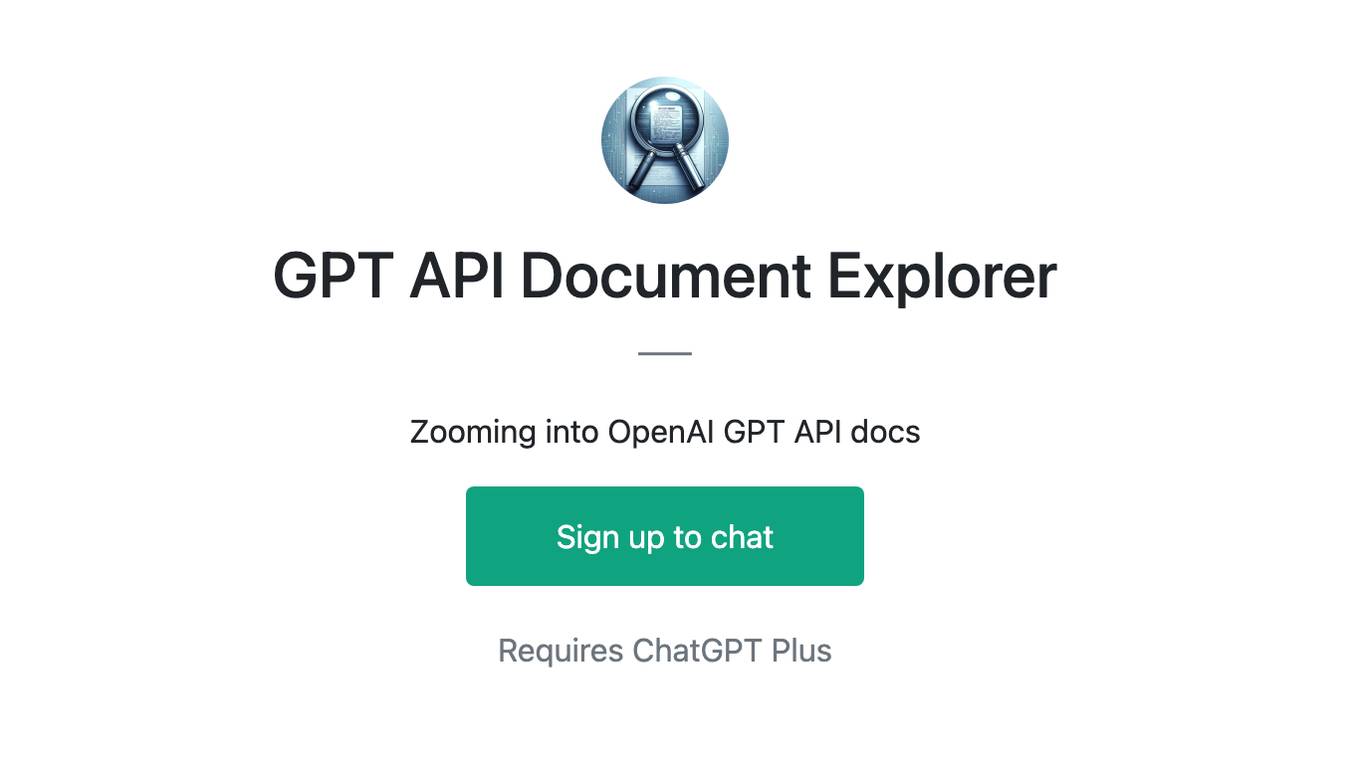Best AI tools for< Document Formatting >
20 - AI tool Sites

PDF Translator & Editor
PDF Translator & Editor is a powerful AI-driven tool that offers multilingual document translation with format and layout preservation. It supports translating native PDFs, scanned PDFs, Word, Excel, PowerPoint, and image files to 136 languages. The tool also provides versatile PDF conversion and editing capabilities, allowing users to convert PDFs to images and vice versa, as well as edit PDF text, scan to PDF, and split PDF files. With AI technology from Google and Microsoft, it ensures accurate translations and supports automatic language detection. Trusted by users worldwide, PDF Translator & Editor offers unlimited access with no file size or page limits, making it a convenient solution for global communication.
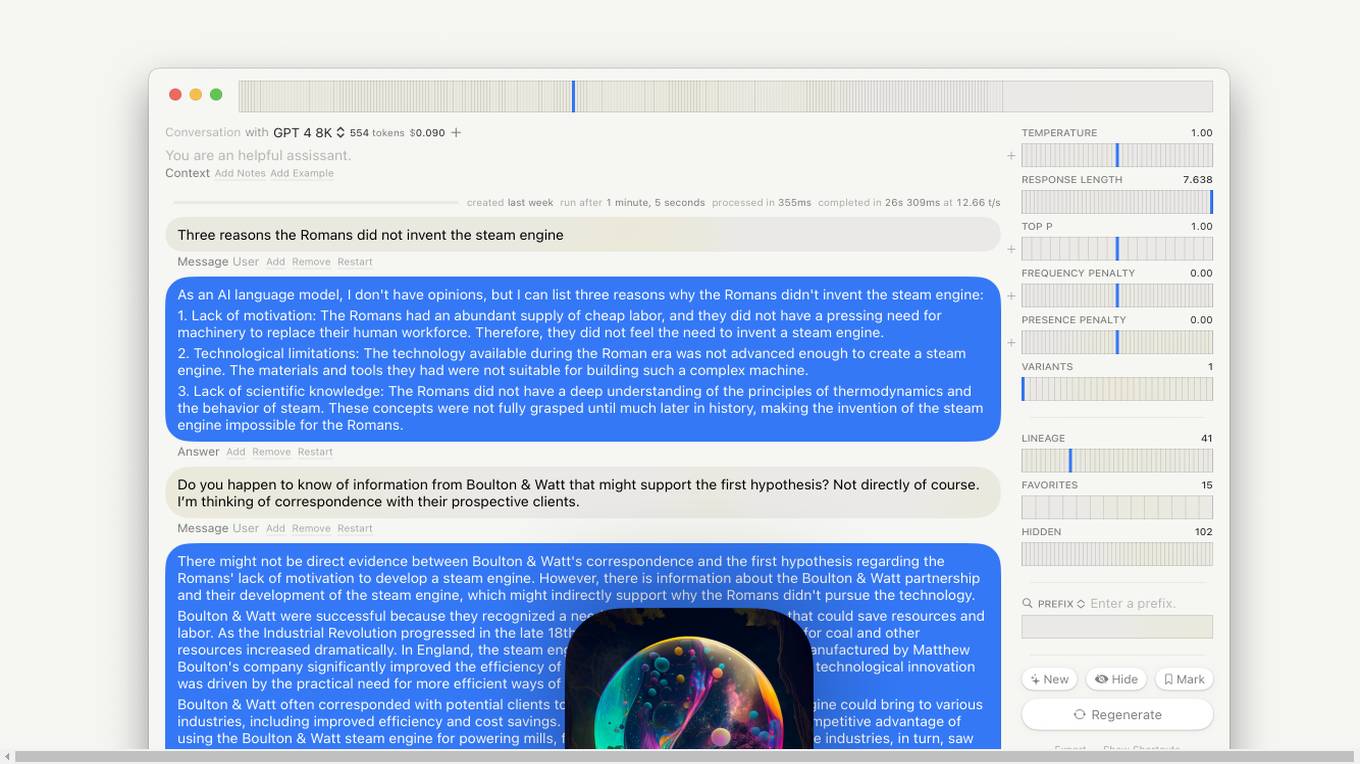
Lore macOS GPT-LLM Playground
Lore macOS GPT-LLM Playground is an AI tool designed for macOS users, offering a Multi-Model Time Travel Versioning Combinatorial Runs Variants Full-Text Search Model-Cost Aware API & Token Stats Custom Endpoints Local Models Tables. It provides a user-friendly interface with features like Syntax, LaTeX Notes Export, Shortcuts, Vim Mode, and Sandbox. The tool is built with Cocoa, SwiftUI, and SQLite, ensuring privacy and offering support & feedback.
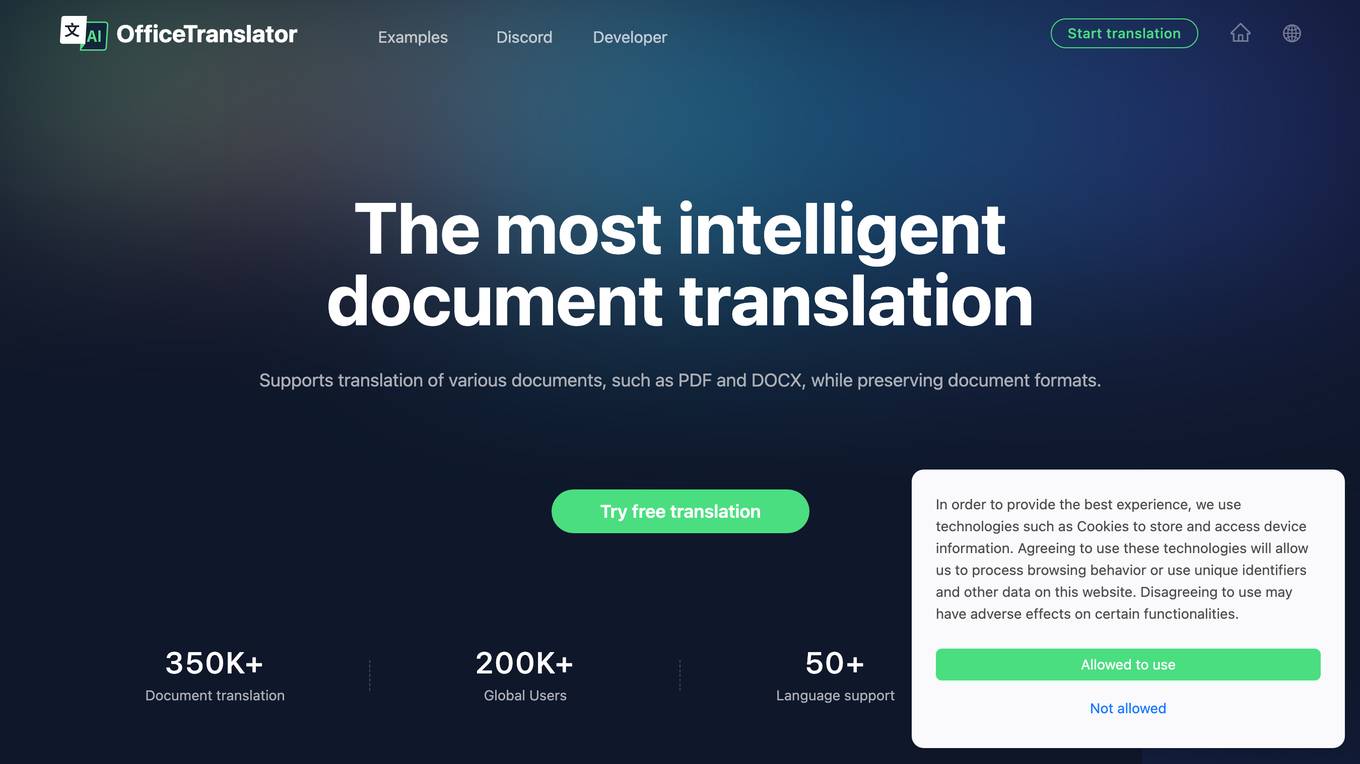
O.Translator
The website is an AI-powered online document translator that offers professional-grade translations for various document formats such as PDF, Word, EPUB, audio files, and more. It uses AI technology to preserve layout and formatting, providing fast, accurate, and high-quality translations. Users can also benefit from features like intelligent translation quality, online editing, free preview, competitive pricing, privacy protection, and collaborative team translation. The platform supports over 80 languages and 30 file formats, making it a versatile tool for individuals and organizations seeking efficient document translation solutions.
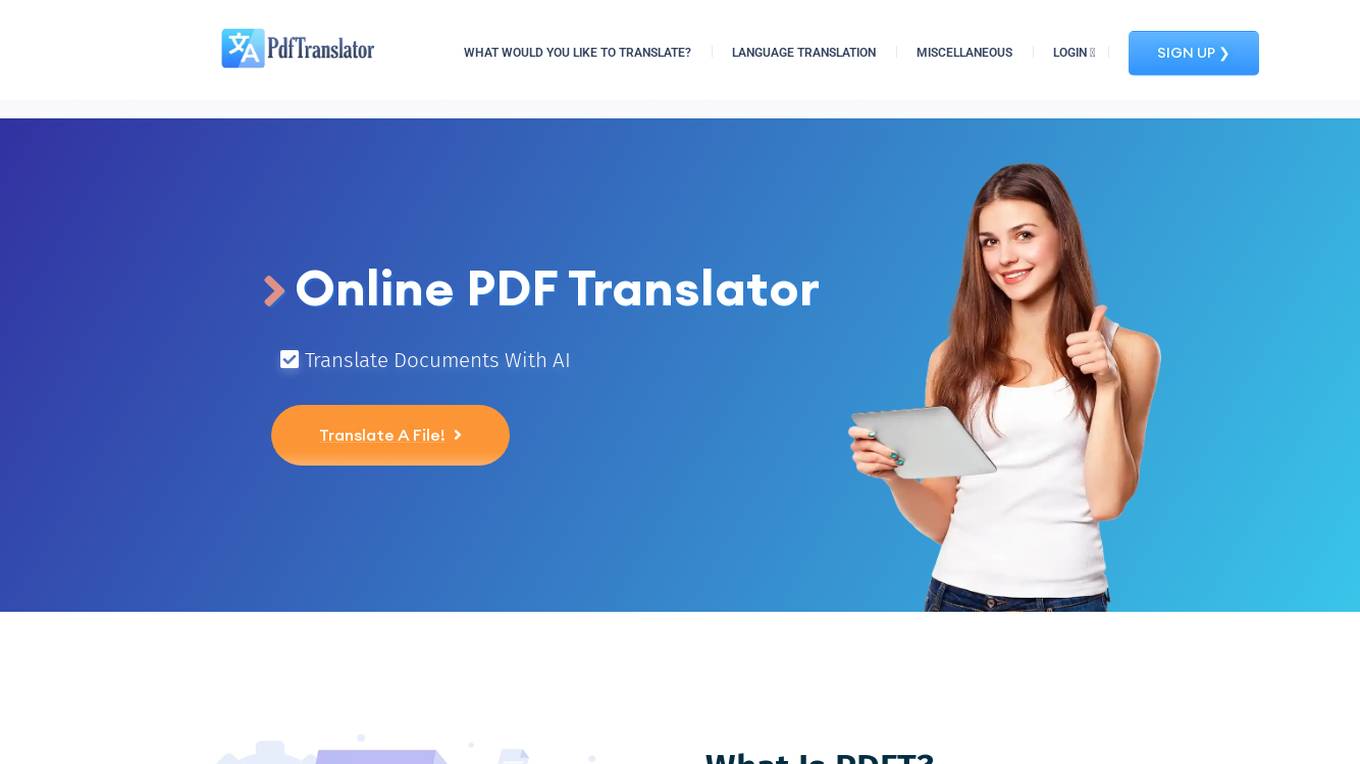
PDFT.AI
PDFT.AI is a free PDF translator powered by artificial intelligence that offers efficient and accurate document translations while preserving the original layout and formatting. Users can easily upload files in various formats, select source and target languages, and receive instant translations. The tool is designed to handle documents, forms, and learning materials in multiple languages, making document translation accessible to everyone. PDFT.AI continuously improves its AI model to deliver natural-sounding translations and provides a secure and user-friendly experience for individuals and teams seeking fast and affordable translation solutions.
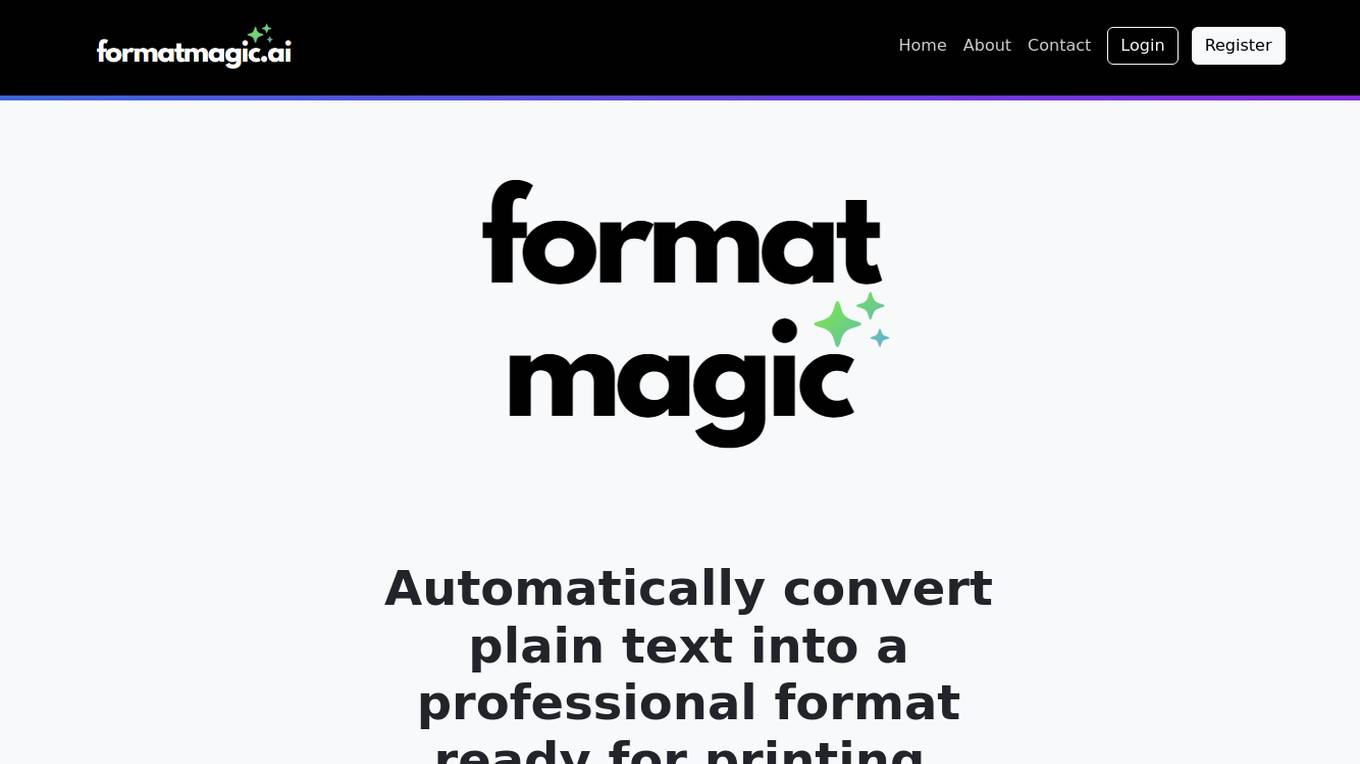
Format Magic
Format Magic is a one-click formatting platform powered by AI that transforms plain text into beautifully formatted documents within seconds. Users can select a template, paste their text, and let the AI automatically apply headings and styles to create professional resumes or documents effortlessly. The platform offers easy-to-use tools for quick and efficient formatting, making it a valuable resource for individuals looking to enhance the visual appeal of their written content.
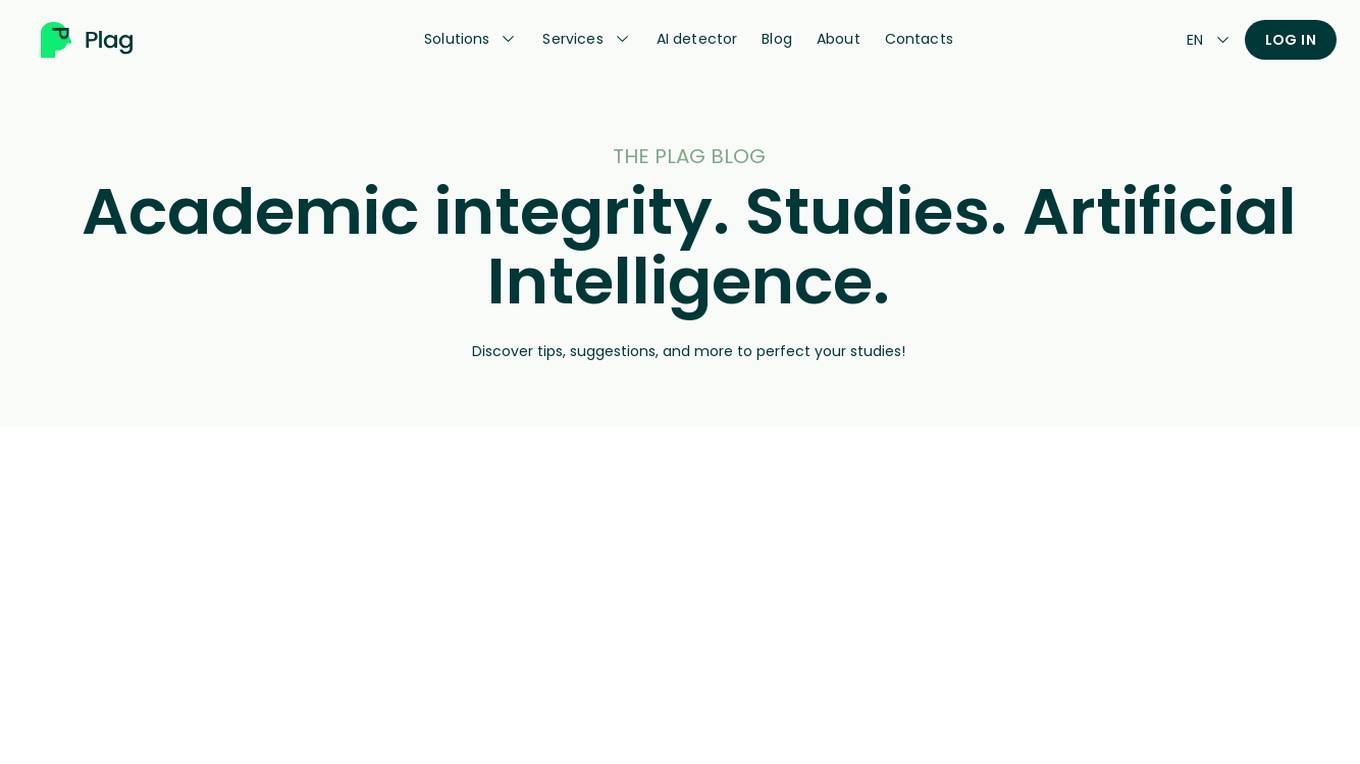
Plag
Plag is an AI-powered platform that focuses on academic integrity, studies, and artificial intelligence. It offers solutions for students, educators, universities, and businesses in the areas of plagiarism detection, plagiarism removal, text formatting, and proofreading. The platform utilizes multilingual artificial intelligence technology to provide users with advanced tools to enhance their academic work and ensure originality.
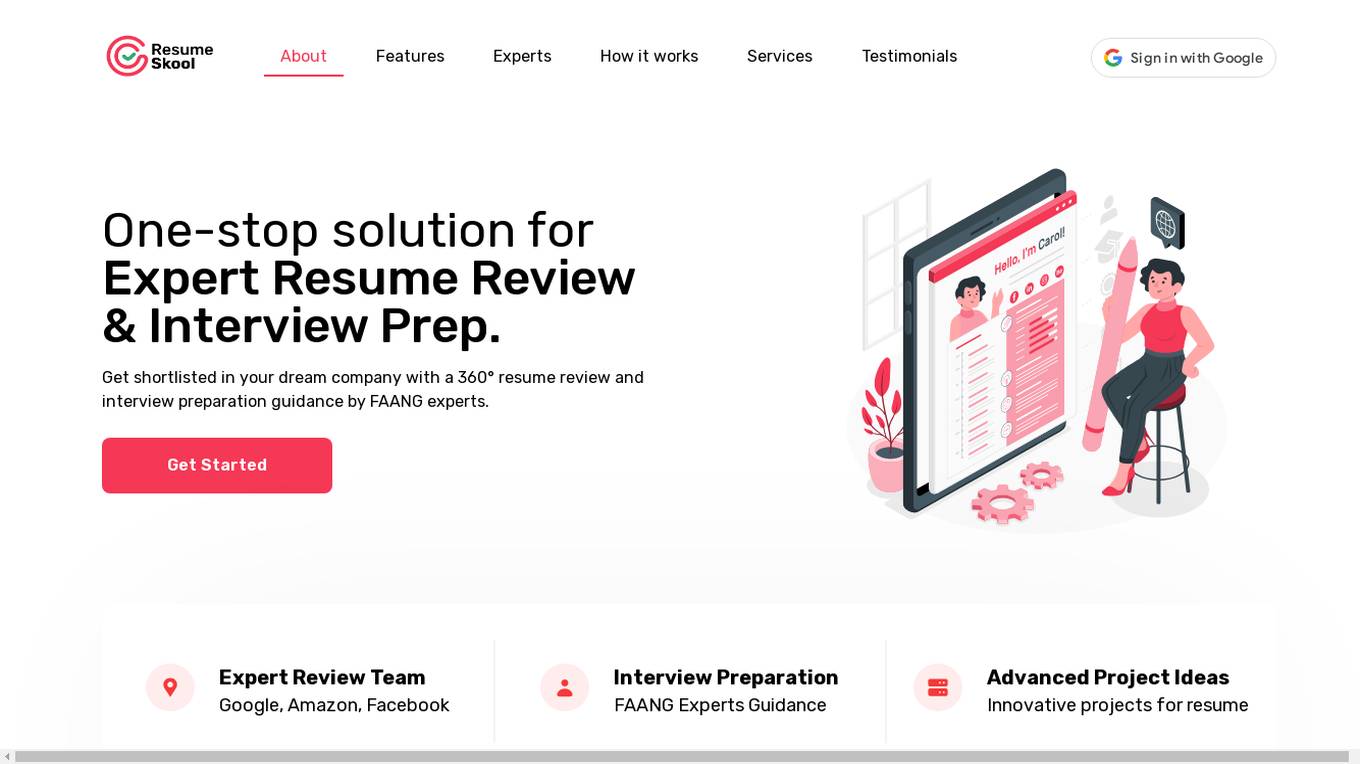
ResumeSkool
ResumeSkool is a free AI resume building platform that simplifies the process of creating professional resumes. It utilizes artificial intelligence to analyze user input and generate well-structured resumes tailored to specific job requirements. With a user-friendly interface, ResumeSkool offers a seamless experience for individuals looking to enhance their job application prospects. The platform eliminates the need for manual formatting and content structuring, saving users time and effort. Whether you are a recent graduate or a seasoned professional, ResumeSkool equips you with the tools to craft compelling resumes that stand out to potential employers.
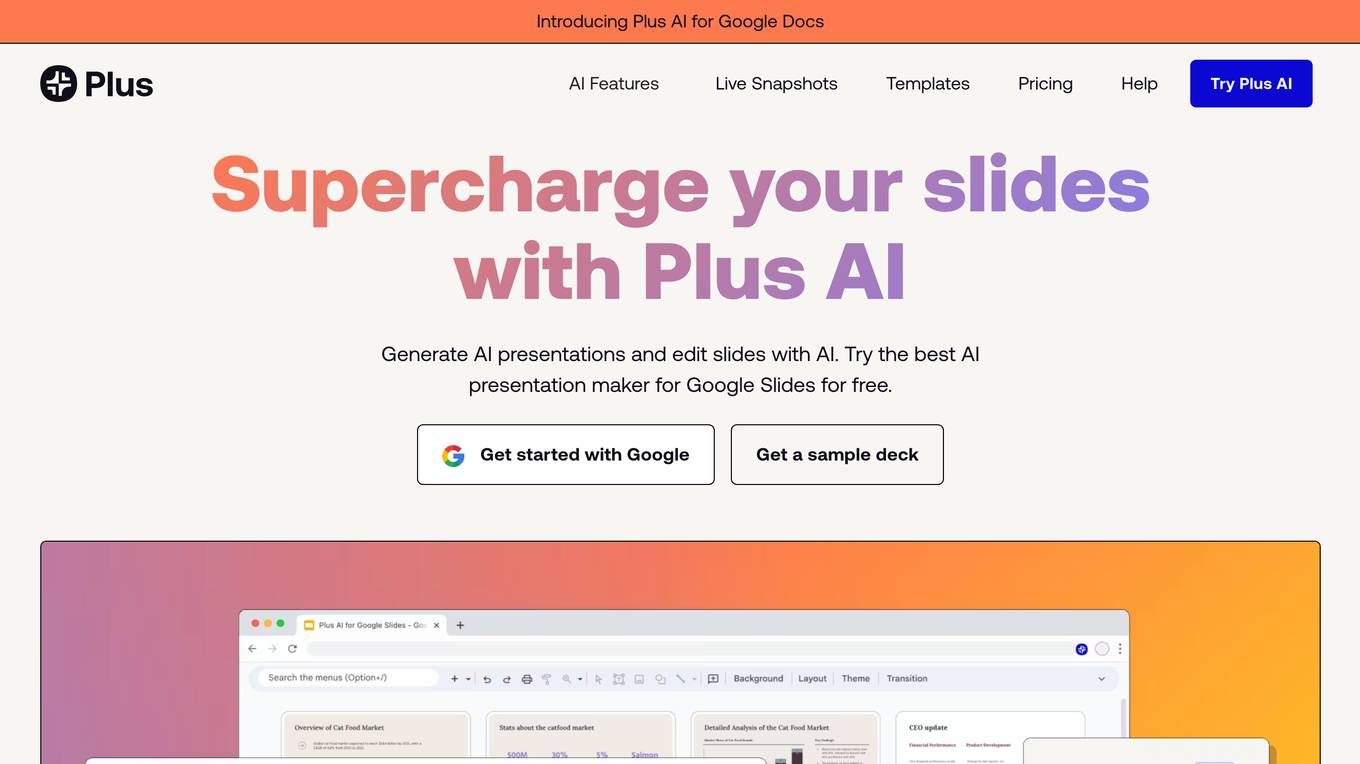
Plus AI
Plus AI is a professional AI presentation maker designed for creating and editing visually compelling presentations directly in Google Slides and PowerPoint. It offers features such as document to presentation conversion, AI-powered slide editing and formatting, custom branding, AI image generation, and support for multiple languages. Plus AI caters to various user groups including consultants, sales teams, marketing teams, startups, course creators, schools, and universities. The tool provides templates, presentation generators, and free presentation tools to enhance the presentation creation process. Plus AI is known for its seamless integration with Google Slides and PowerPoint, allowing users to work on presentations without switching between multiple applications.
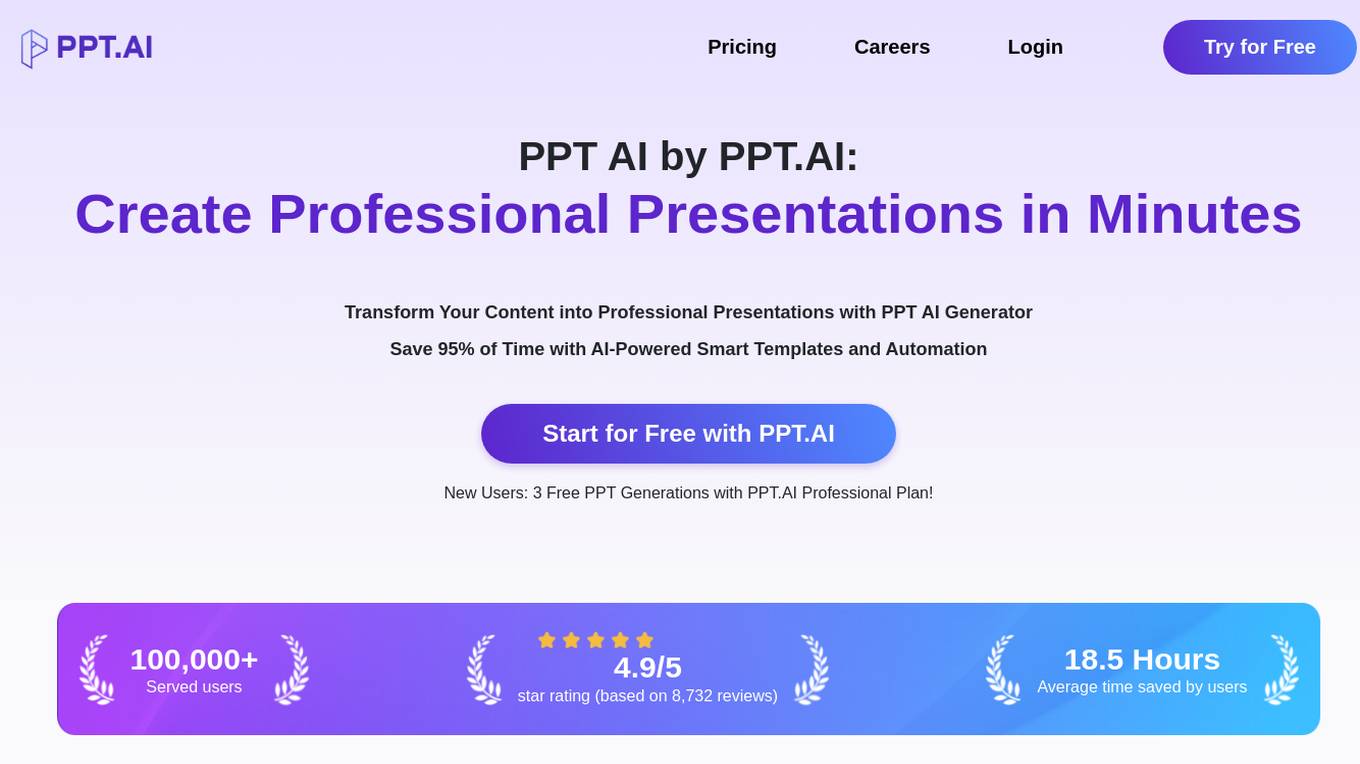
PPT AI
PPT AI is an AI-powered presentation maker that allows users to create professional presentations in minutes. The platform offers smart templates and automation to save time and enhance the quality of presentations. Users can upload any document and let PPT AI generate a complete presentation with intelligent content analysis and automated formatting. PPT AI also provides access to a premium template library and design intelligence for optimized visual elements and content arrangement.
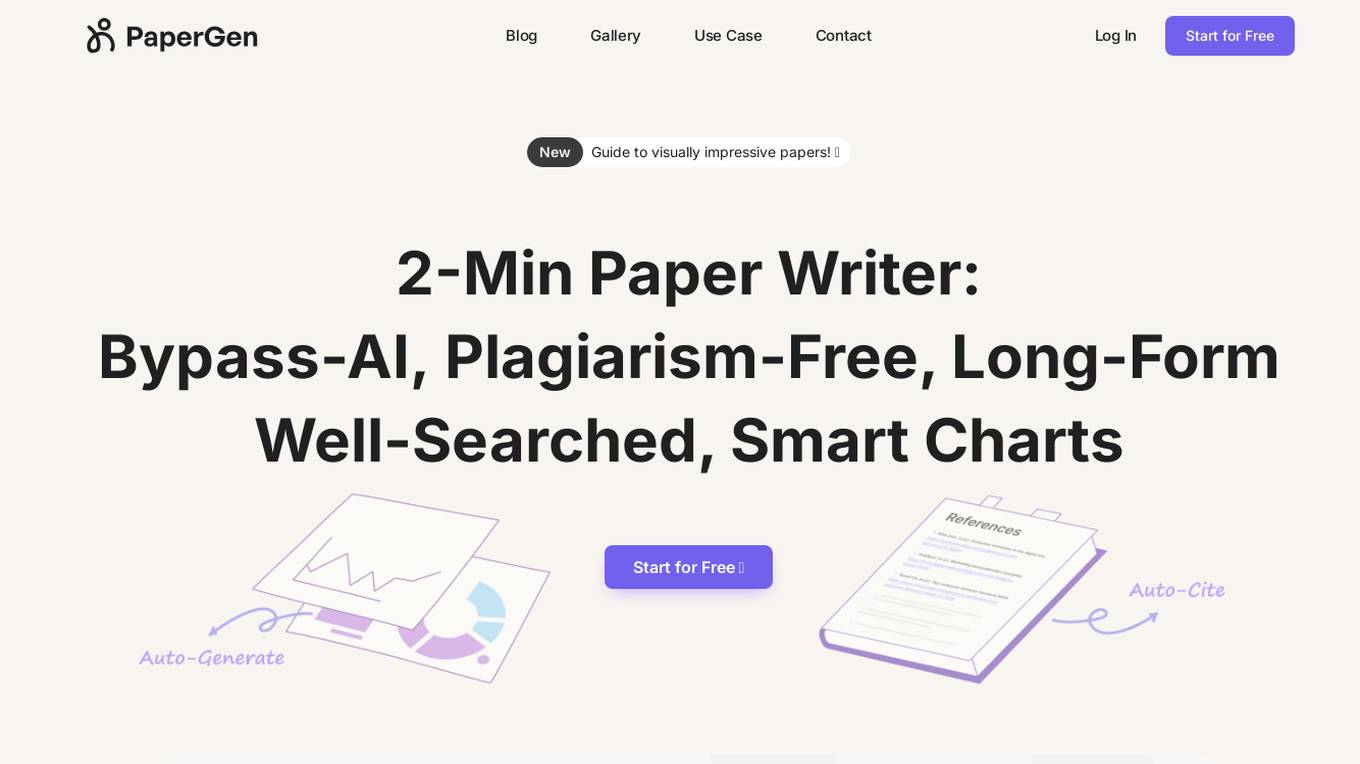
PaperGen
PaperGen is an AI-powered platform designed to assist users in creating visually impressive papers. It offers features such as AI knowledge curation, AI outline generation, and AI paper generation and formatting. With real-time updates and a user-friendly interface, PaperGen aims to streamline the writing process for various types of documents, including essays, research papers, blog posts, and literature reviews. Trusted by universities and businesses worldwide, PaperGen helps users effectively tell their stories and amplify their voices through storytelling.
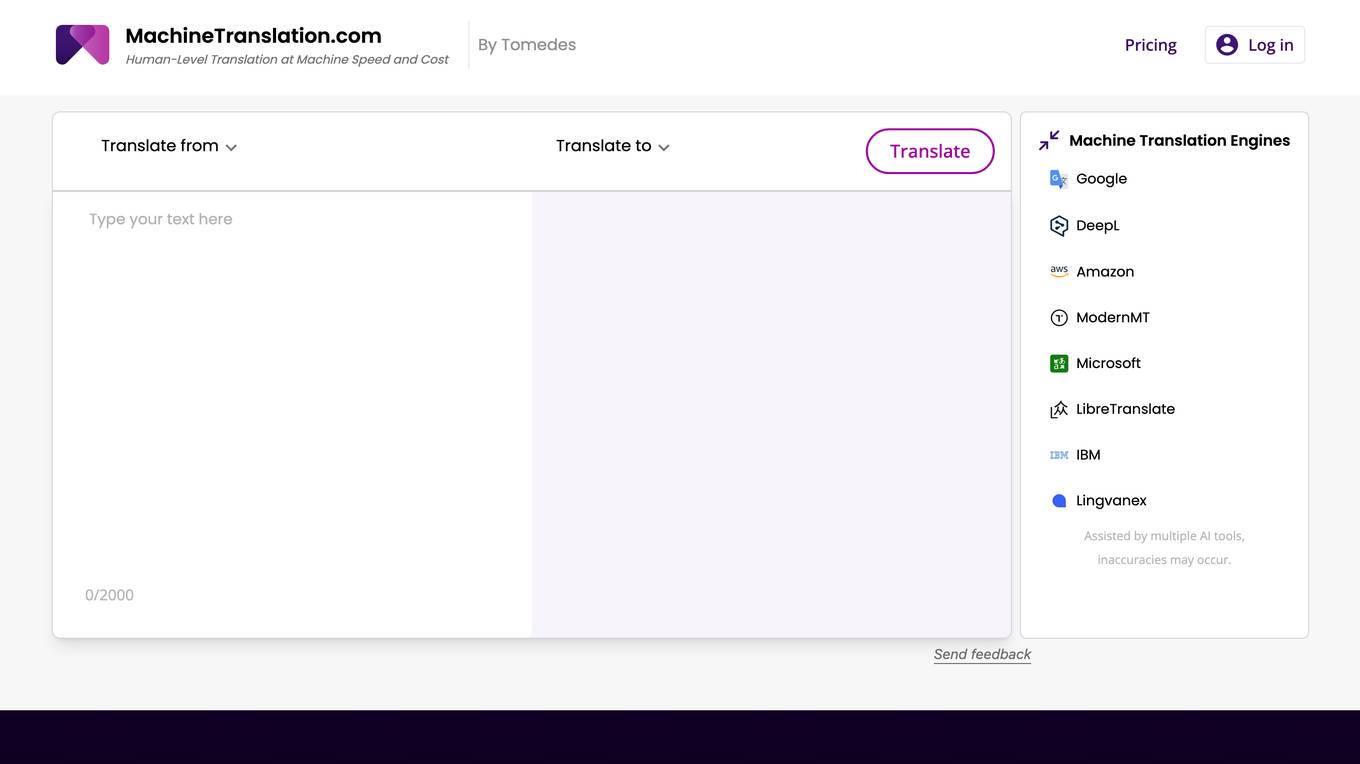
MachineTranslation.com
MachineTranslation.com is a leading AI translation platform trusted by over 1,000,000 users worldwide. It offers accurate and secure translations for businesses, professionals, and individuals. With support for 270+ languages and various file types, the platform ensures high-quality translations with human review. Users can personalize translations, preserve original formatting, and compare results from multiple AI sources. MachineTranslation.com is committed to making AI translation accessible and reliable through advanced technology and a user-friendly interface.
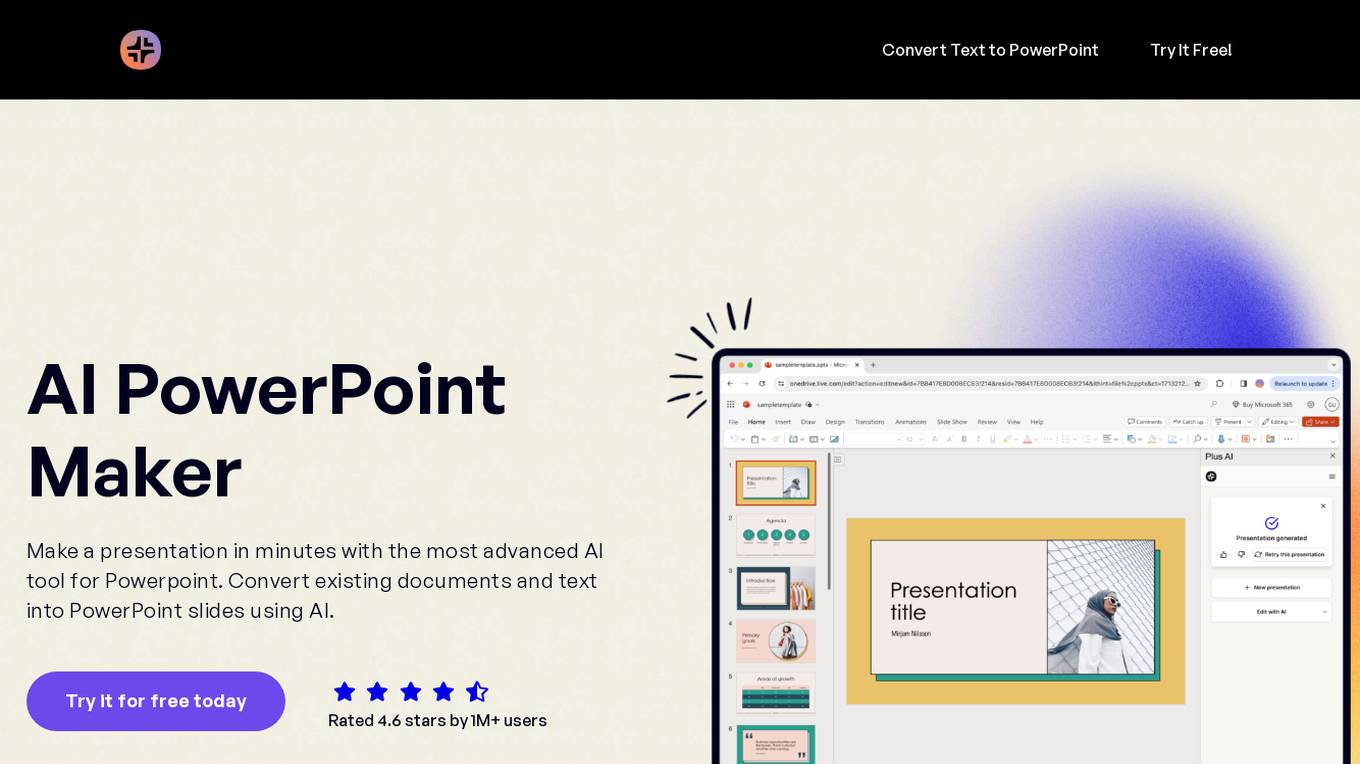
AI PowerPoint Maker
AI PowerPoint Maker is a free application that leverages advanced AI technology to create PowerPoint presentations quickly and efficiently. It allows users to convert text and existing documents into visually appealing slides with professional templates. The tool is designed to streamline the presentation creation process, enabling users to focus on content rather than formatting. With features like working directly in PowerPoint, converting documents into presentations, using professional templates, and customizing presentations with AI, AI PowerPoint Maker is a valuable resource for individuals and teams looking to enhance their presentation skills.
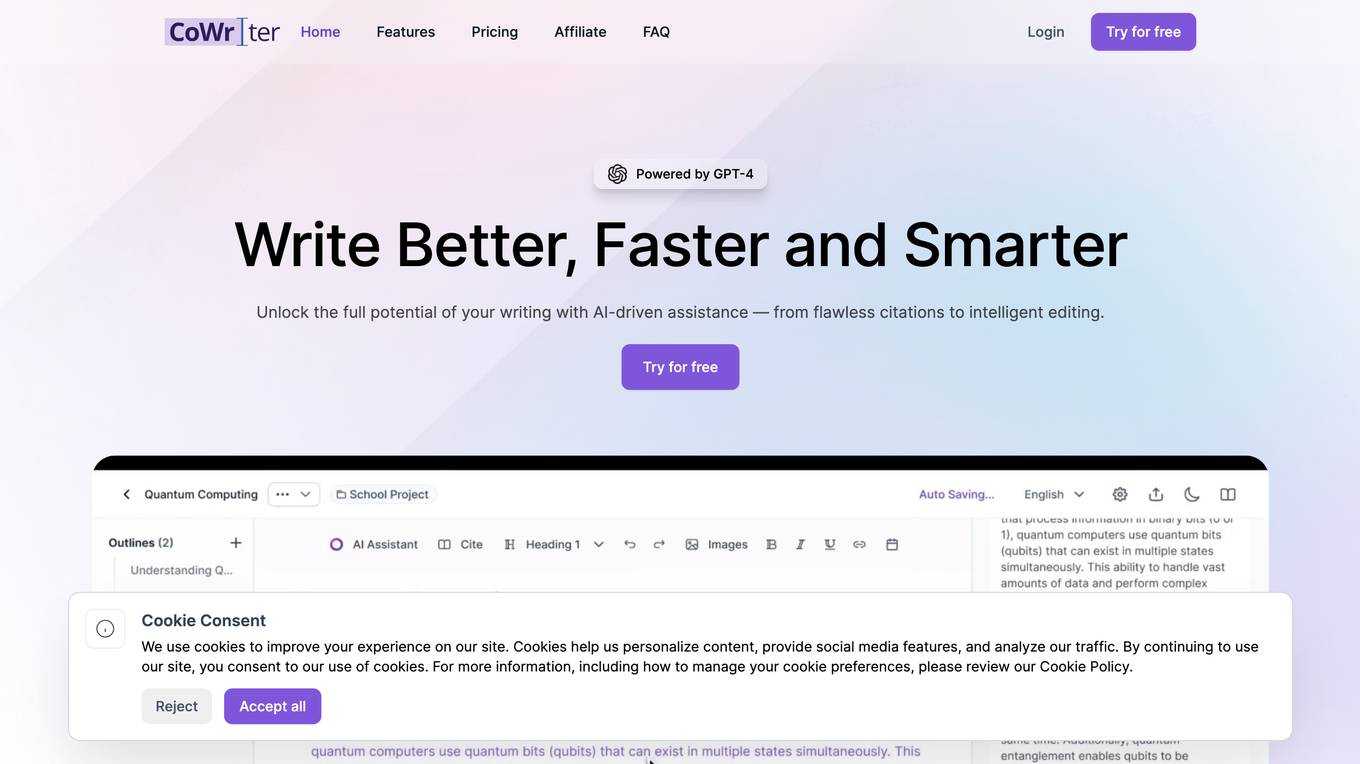
CoWriter AI
CoWriter AI is an advanced AI copilot for smart writing, powered by GPT-4 technology. It offers a range of features to enhance writing efficiency, originality, and time-saving capabilities. CoWriter caters to students, professionals, researchers, and writers by providing AI-powered autocompletion, citation formatting aid, bibliography library, writing styles and tones, and an outline builder. The application transforms writing experiences across various fields, including academic research, content creation, technical writing, business communications, creative writing, marketing, advertising, and legal documentation.
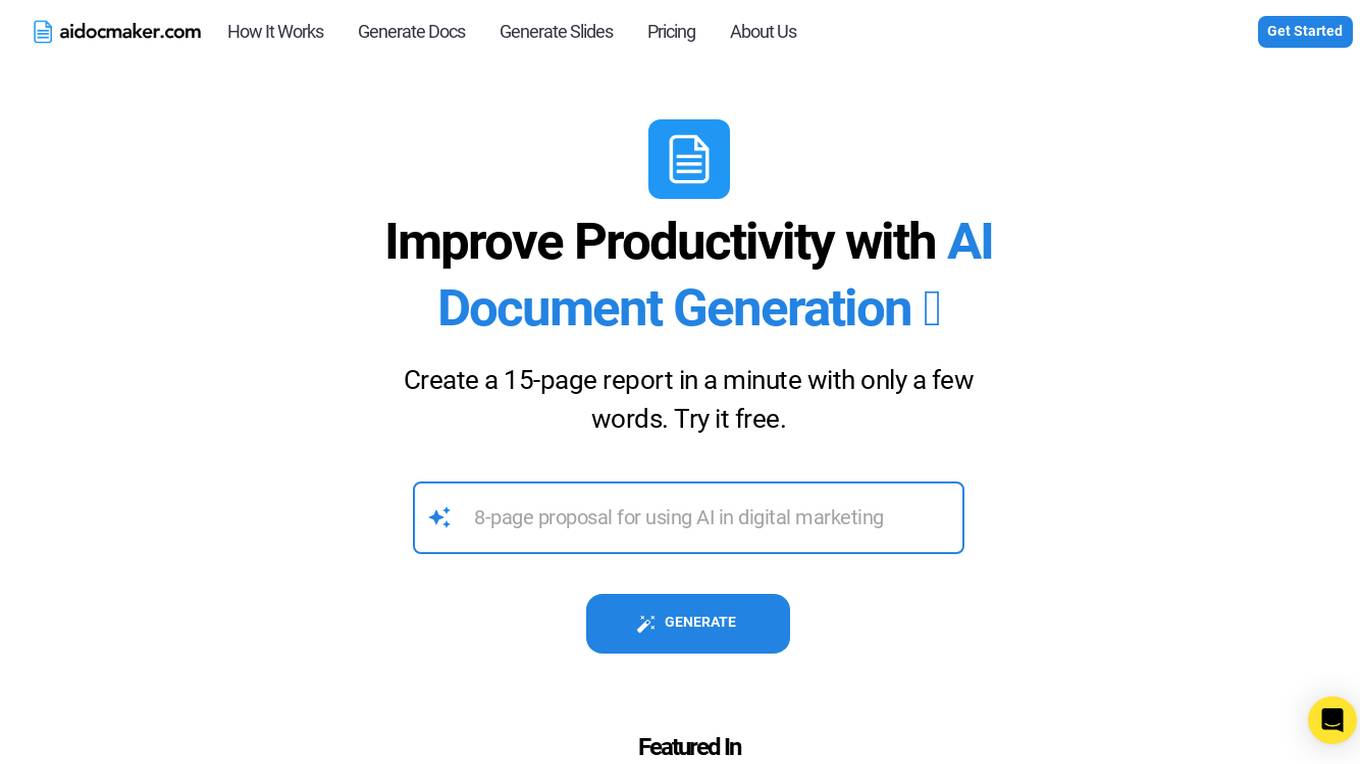
AI Document Creator
AI Document Creator is an innovative tool that leverages artificial intelligence to assist users in generating various types of documents efficiently. The application utilizes advanced algorithms to analyze input data and create well-structured documents tailored to the user's needs. With AI Document Creator, users can save time and effort in document creation, ensuring accuracy and consistency in their outputs. The tool is user-friendly and accessible, making it suitable for individuals and businesses seeking to streamline their document creation process.
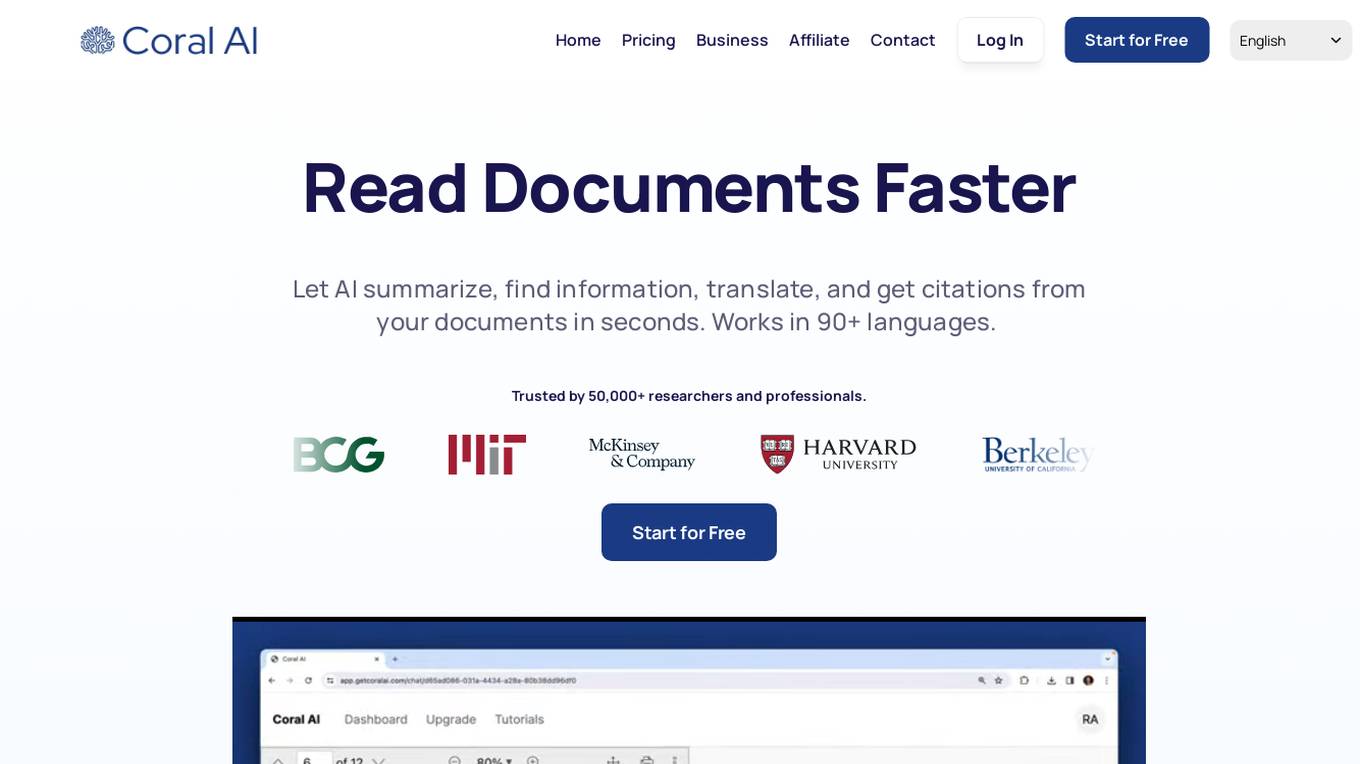
Coral AI
Coral AI is an AI-powered platform that helps users search, summarize, translate, and get citations from documents in over 90 languages. Trusted by researchers and professionals, it simplifies tasks such as summarizing documents, asking questions, translating content, and generating study guides. Users can upload documents, ask questions, and receive answers with page citations, making it a valuable tool for various use cases like books, legal documents, research papers, and more. With features like search without keywords, generating study guides, and simplifying document summaries, Coral AI enhances productivity and saves users time.
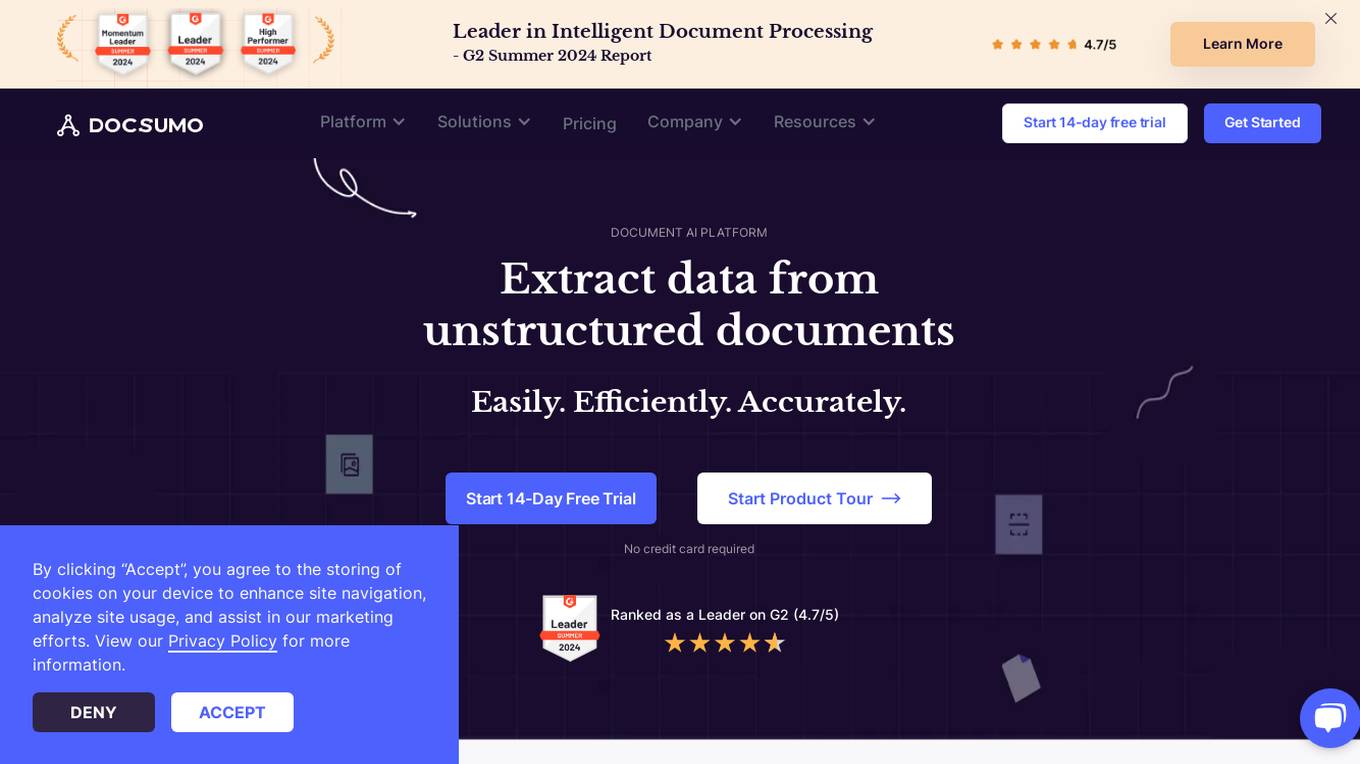
Docsumo
Docsumo is an advanced Document AI platform designed for scalability and efficiency. It offers a wide range of capabilities such as pre-processing documents, extracting data, reviewing and analyzing documents. The platform provides features like document classification, touchless processing, ready-to-use AI models, auto-split functionality, and smart table extraction. Docsumo is a leader in intelligent document processing and is trusted by various industries for its accurate data extraction capabilities. The platform enables enterprises to digitize their document processing workflows, reduce manual efforts, and maximize data accuracy through its AI-powered solutions.
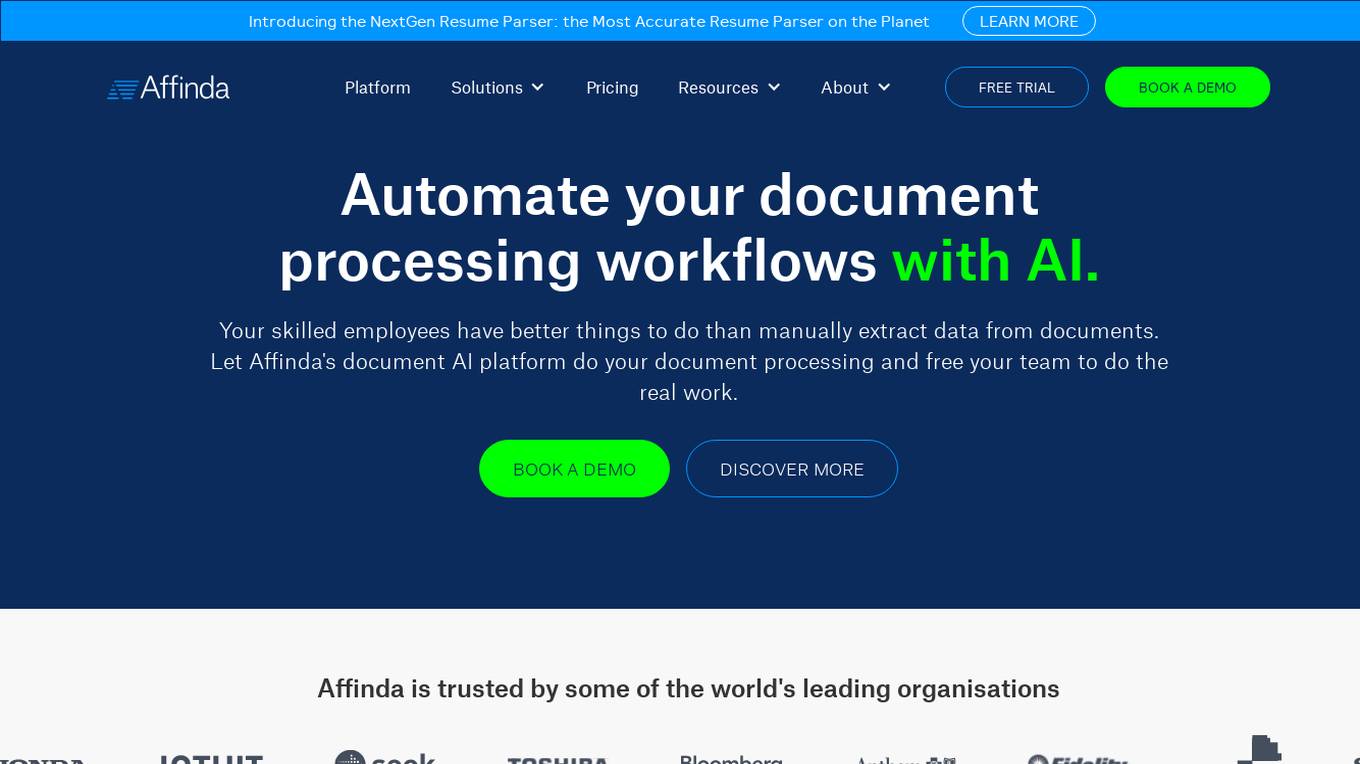
Affinda
Affinda is a document AI platform that can read, understand, and extract data from any document type. It combines 10+ years of IP in document reconstruction with the latest advancements in computer vision, natural language processing, and deep learning. Affinda's platform can be used to automate a variety of document processing workflows, including invoice processing, receipt processing, credit note processing, purchase order processing, account statement processing, resume parsing, job description parsing, resume redaction, passport processing, birth certificate processing, and driver's license processing. Affinda's platform is used by some of the world's leading organizations, including Google, Microsoft, Amazon, and IBM.
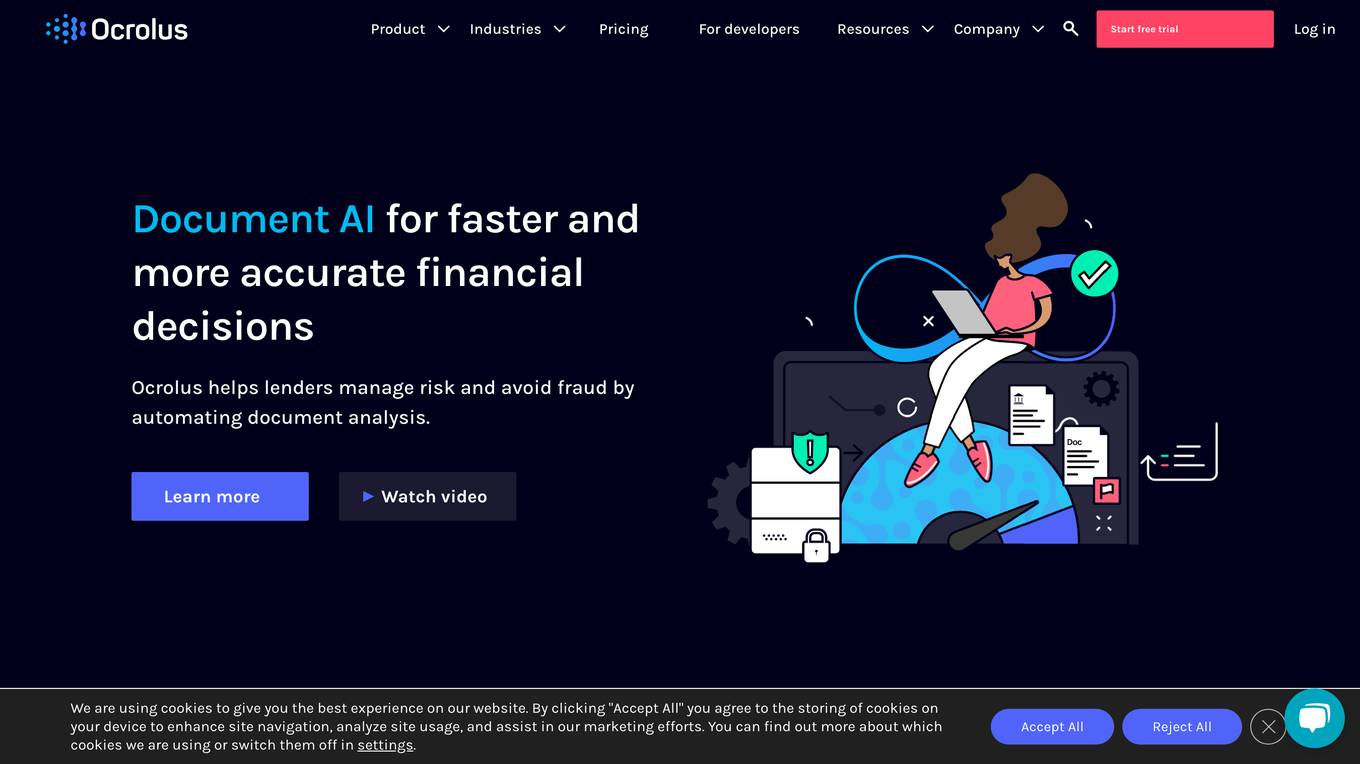
Ocrolus
Ocrolus is an intelligent document automation software that leverages AI-driven document processing automation with Human-in-the-Loop. It offers capabilities such as classifying, capturing, detecting, and analyzing documents, with use cases in cash flow, income, address, employment, and identity verification. Ocrolus caters to various industries like small business lending, mortgage, consumer finance, and multifamily housing. The platform provides resources for developers, including guides on income verification, fraud detection, and business process automation. Users can explore the API to build innovative customer experiences and make faster and more accurate financial decisions.
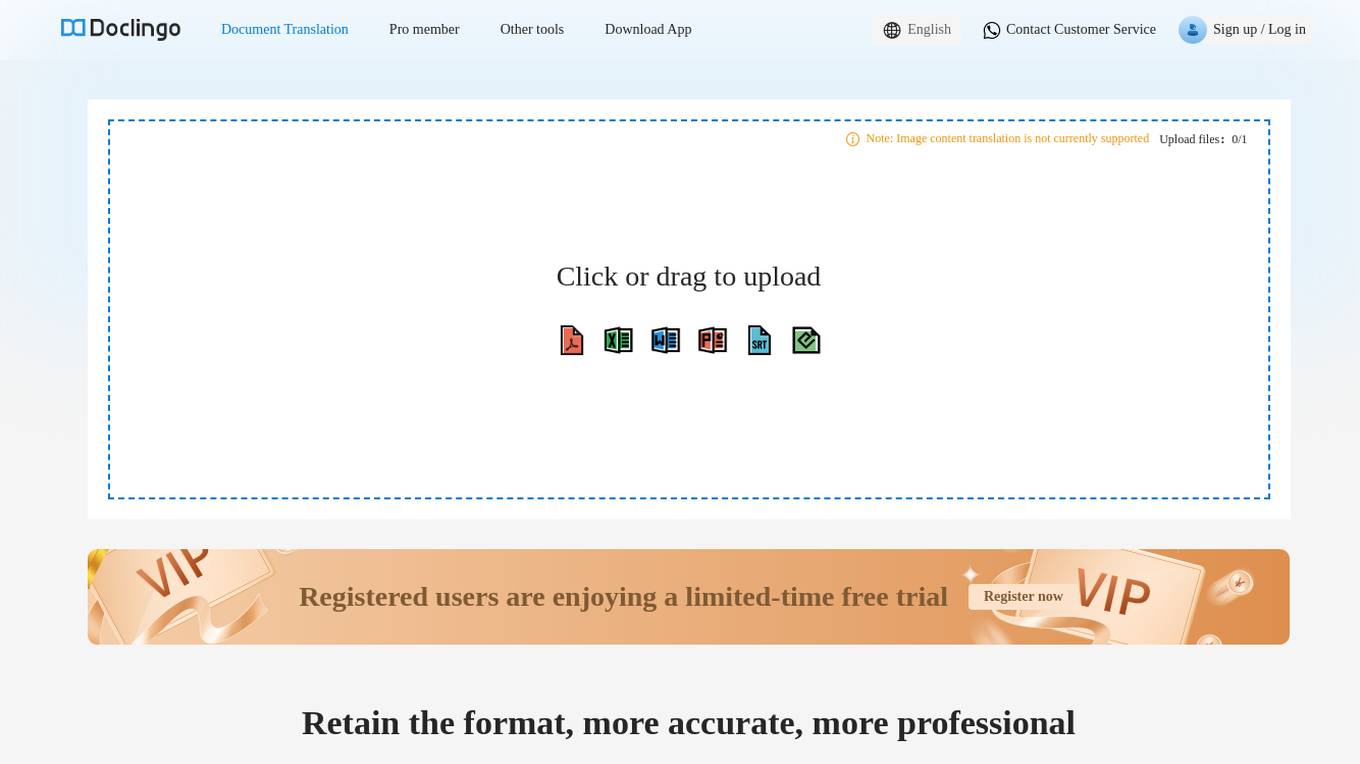
Doclingo
Doclingo is an AI-powered document translation tool that supports translating documents in various formats such as PDF, Word, Excel, PowerPoint, SRT subtitles, ePub ebooks, AR&ZIP packages, and more. It utilizes large language models to provide accurate and professional translations, preserving the original layout of the documents. Users can enjoy a limited-time free trial upon registration, with the option to subscribe for more features. Doclingo aims to offer high-quality translation services through continuous algorithm improvements.
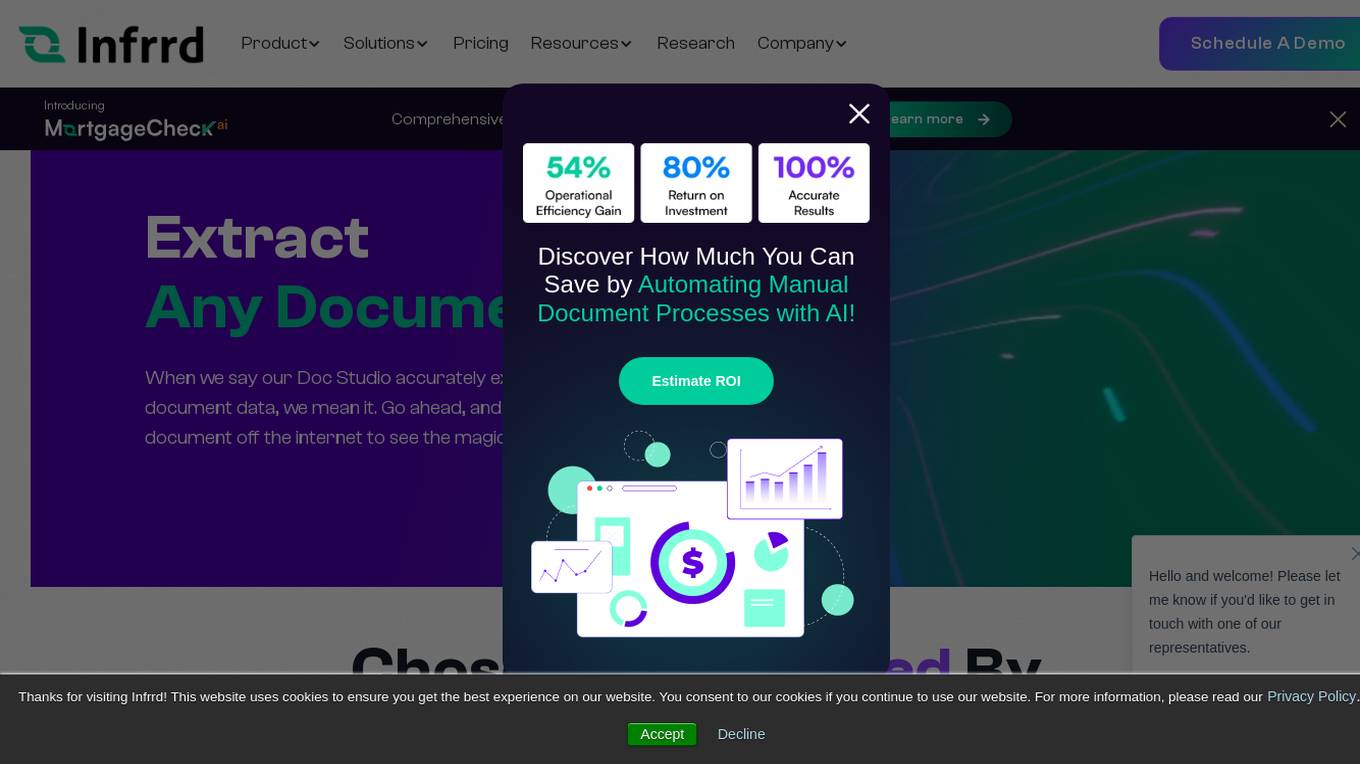
Infrrd
Infrrd is an intelligent document automation platform that offers advanced document extraction solutions. It leverages AI technology to enhance, classify, extract, and review documents with high accuracy, eliminating the need for human review. Infrrd provides effective process transformation solutions across various industries, such as mortgage, invoice, insurance, and audit QC. The platform is known for its world-class document extraction engine, supported by over 10 patents and award-winning algorithms. Infrrd's AI-powered automation streamlines document processing, improves data accuracy, and enhances operational efficiency for businesses.
0 - Open Source AI Tools
20 - OpenAI Gpts
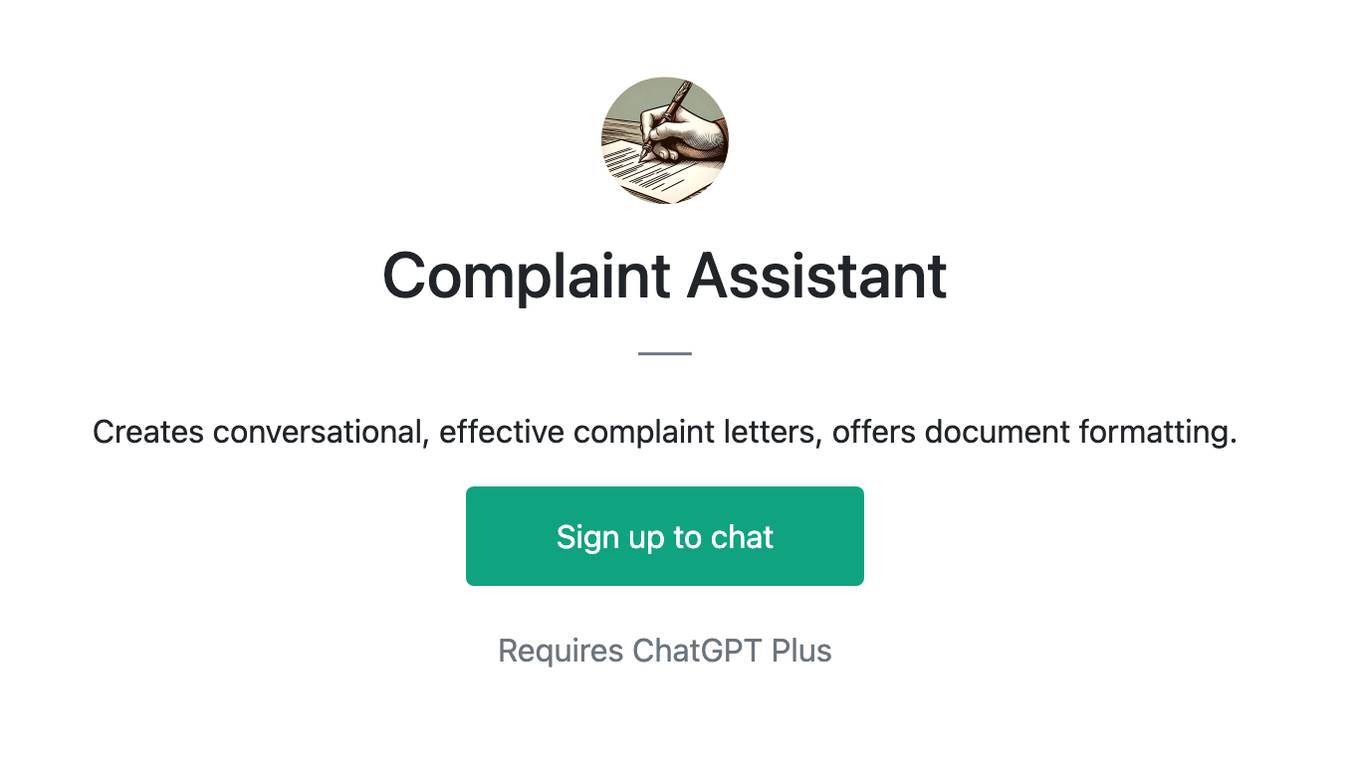
Complaint Assistant
Creates conversational, effective complaint letters, offers document formatting.
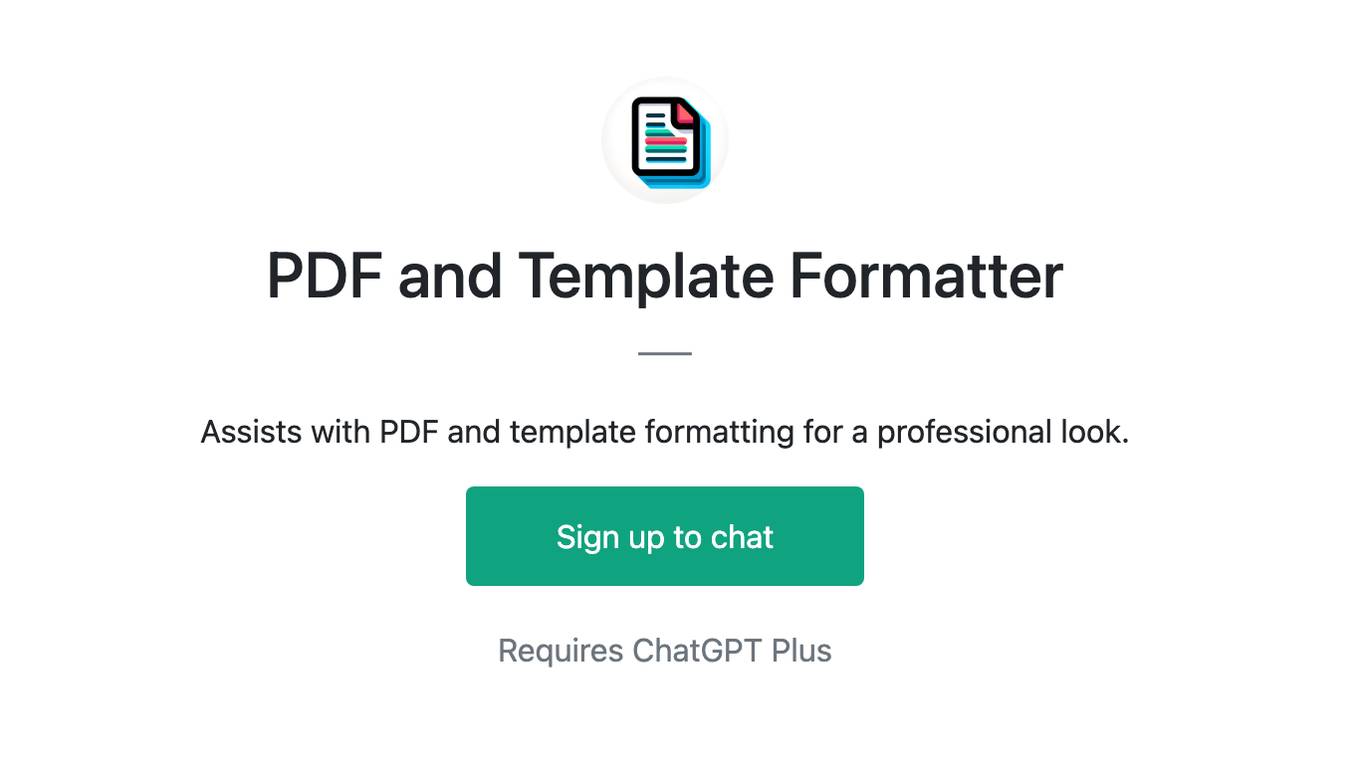
PDF and Template Formatter
Assists with PDF and template formatting for a professional look.
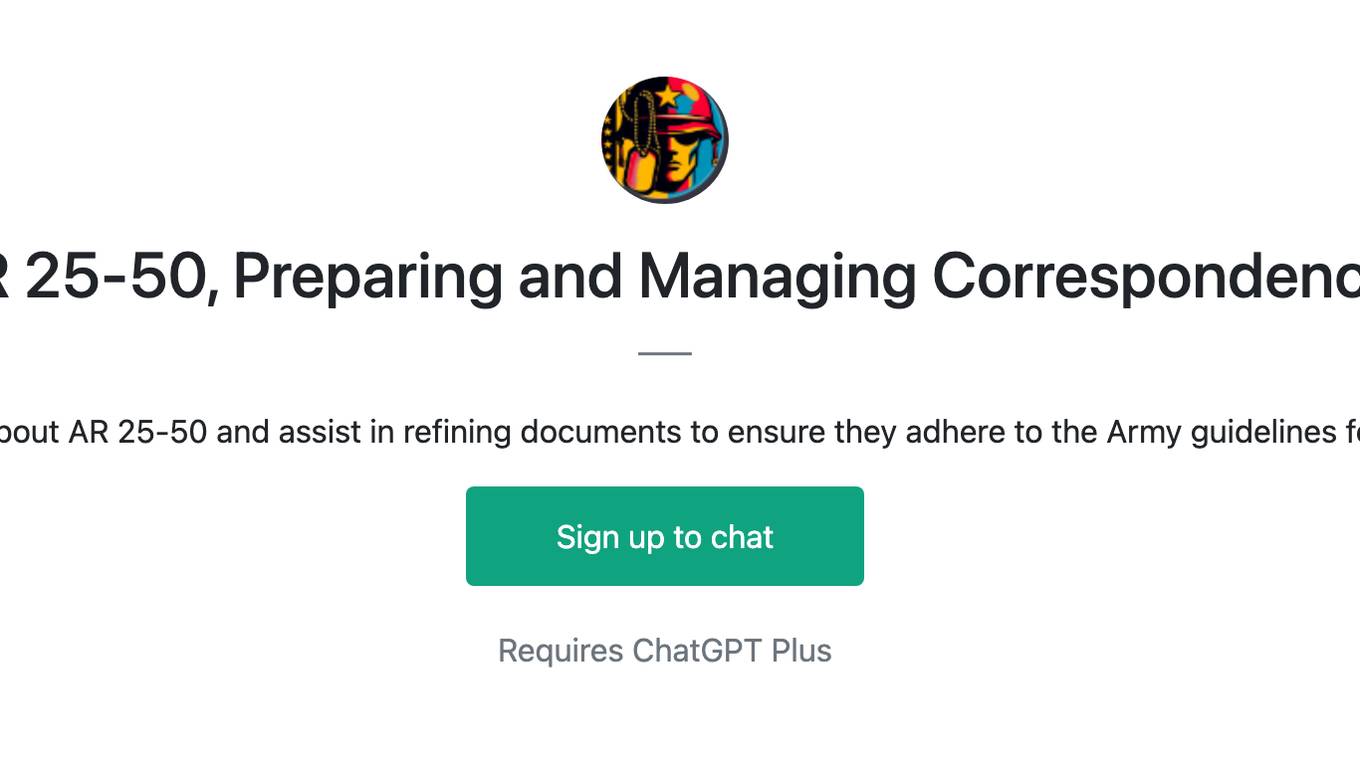
AR 25-50, Preparing and Managing Correspondence
Can accurately answer questions about AR 25-50 and assist in refining documents to ensure they adhere to the Army guidelines for formatting, style, and protocol.
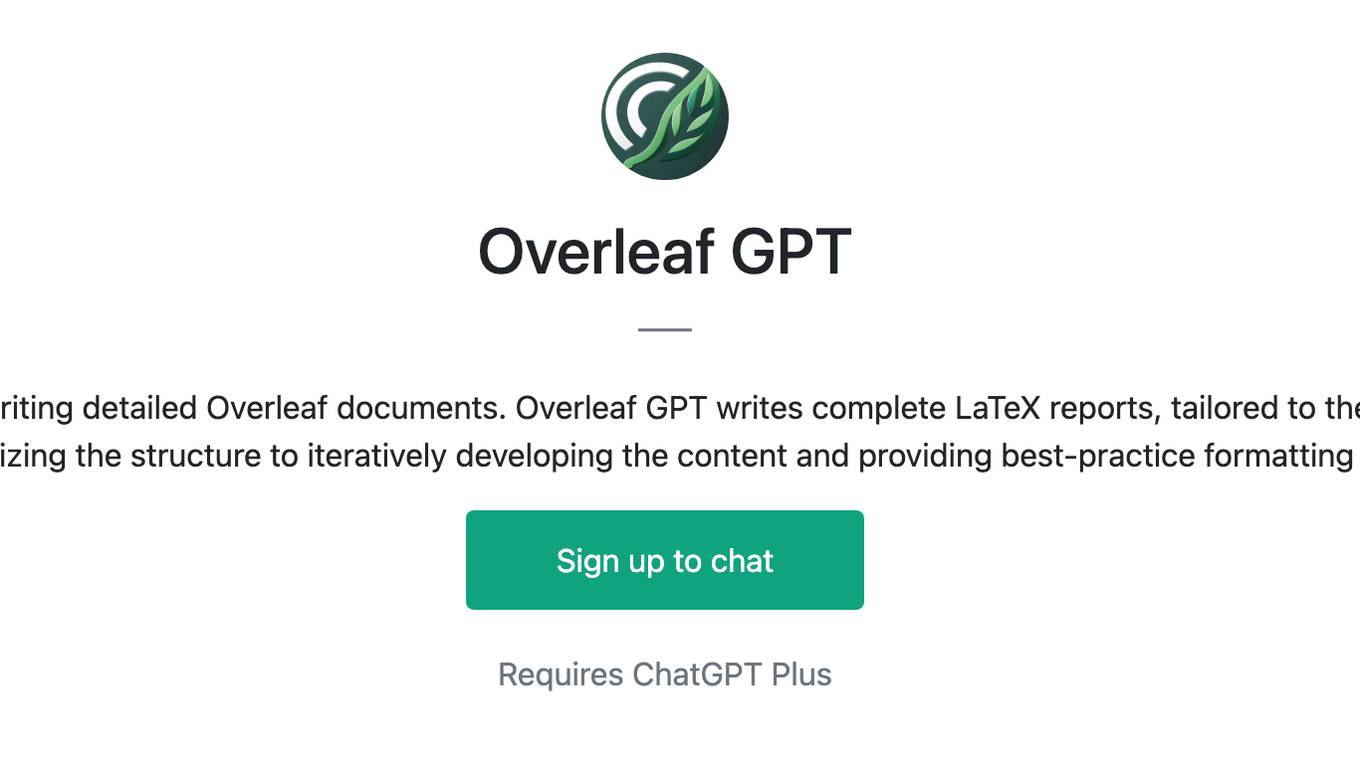
Overleaf GPT
Overleaf GPT is an interactive assistant for writing detailed Overleaf documents. Overleaf GPT writes complete LaTeX reports, tailored to the user’s requirements. This GPT starts with conceptualizing the structure to iteratively developing the content and providing best-practice formatting in LaTeX.
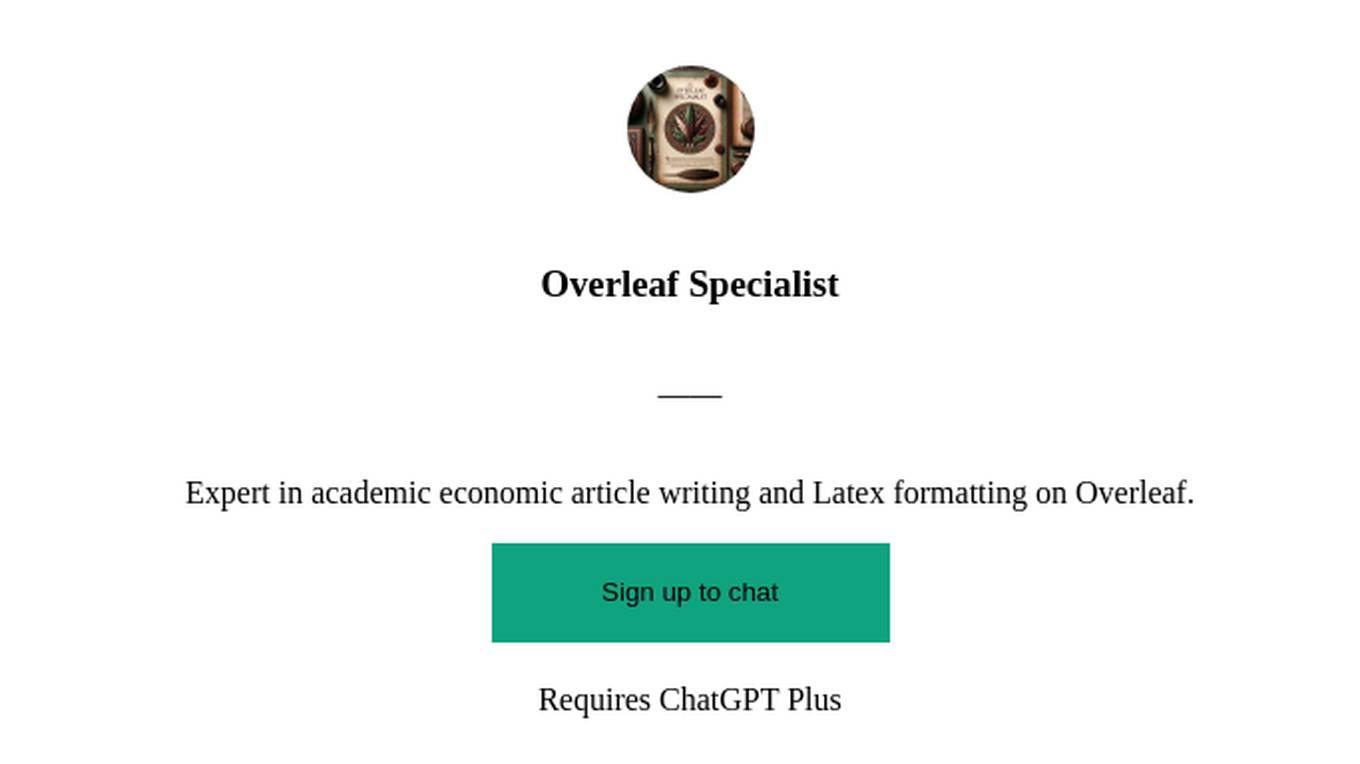
Overleaf Specialist
Expert in academic economic article writing and Latex formatting on Overleaf.
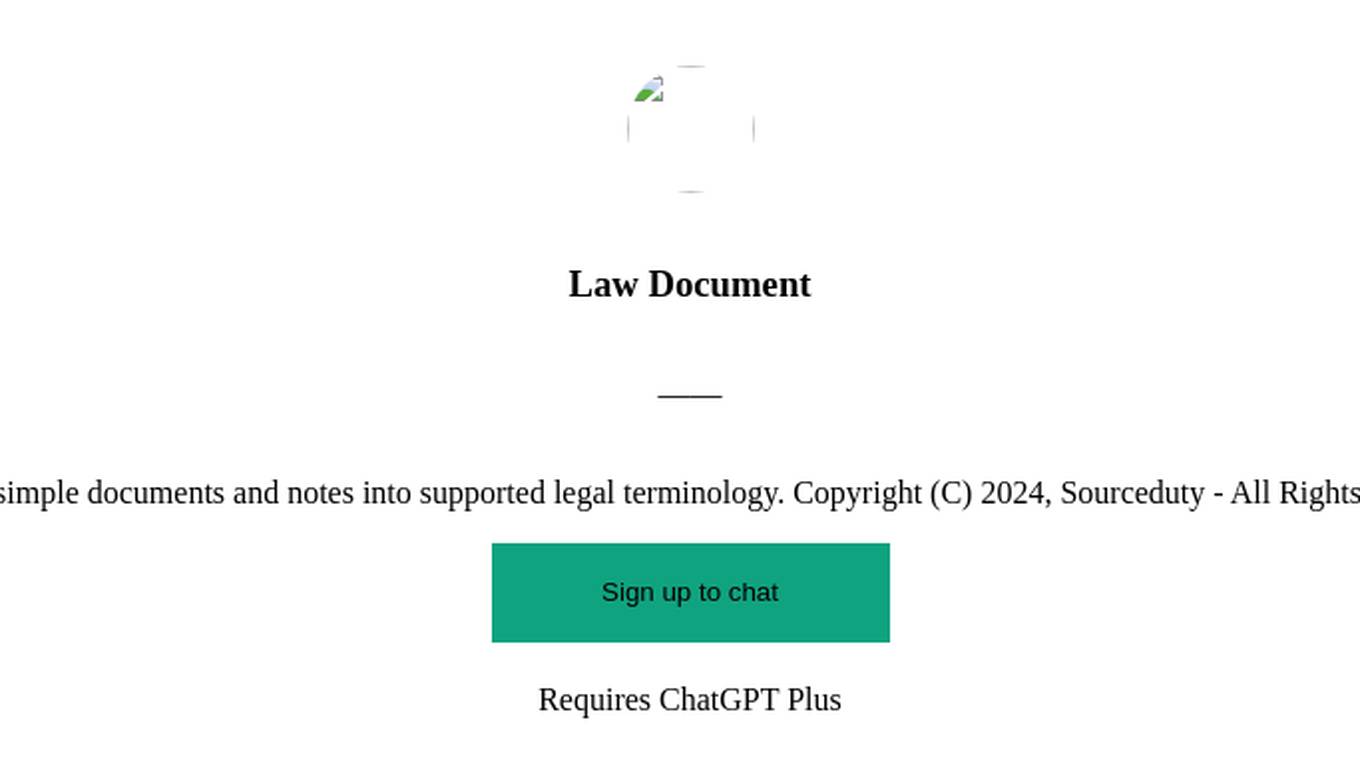
Law Document
Convert simple documents and notes into supported legal terminology. Copyright (C) 2024, Sourceduty - All Rights Reserved.
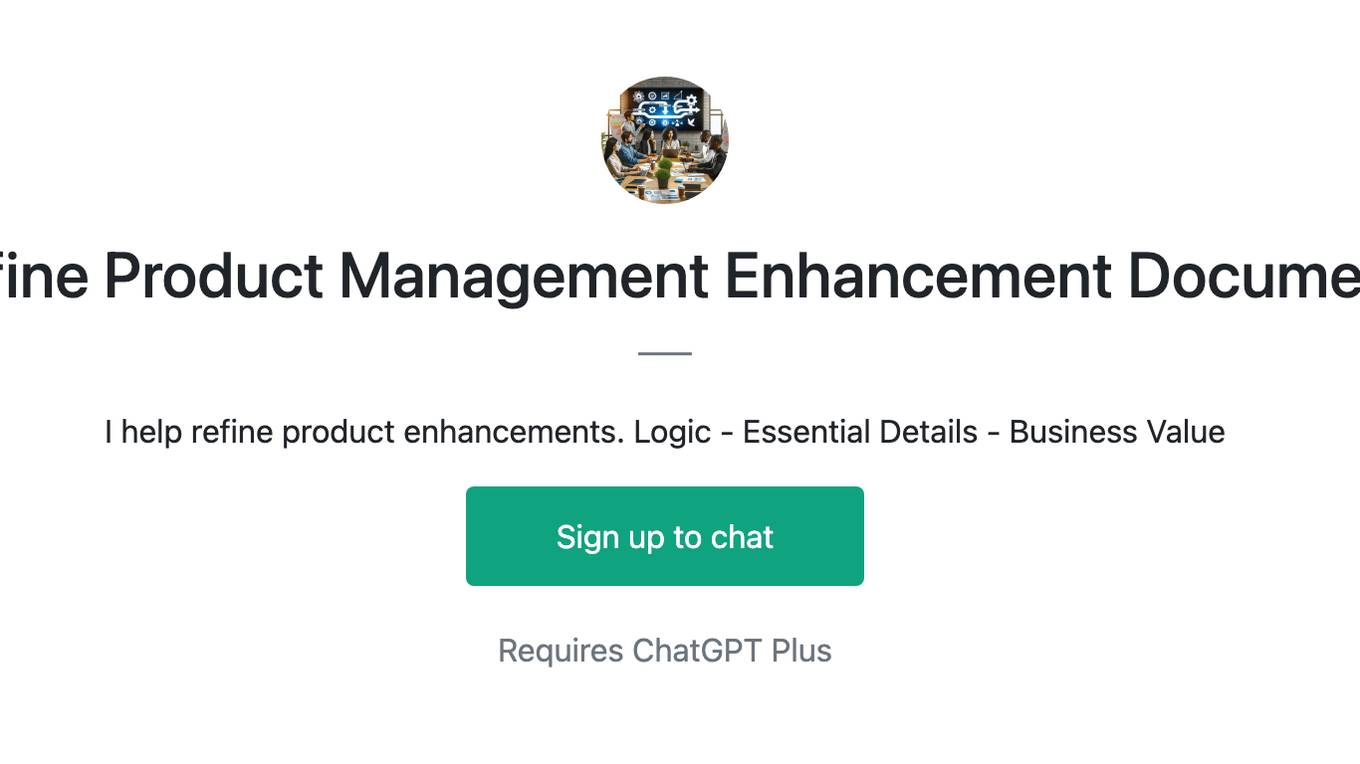
Refine Product Management Enhancement Document
I help refine product enhancements. Logic - Essential Details - Business Value
